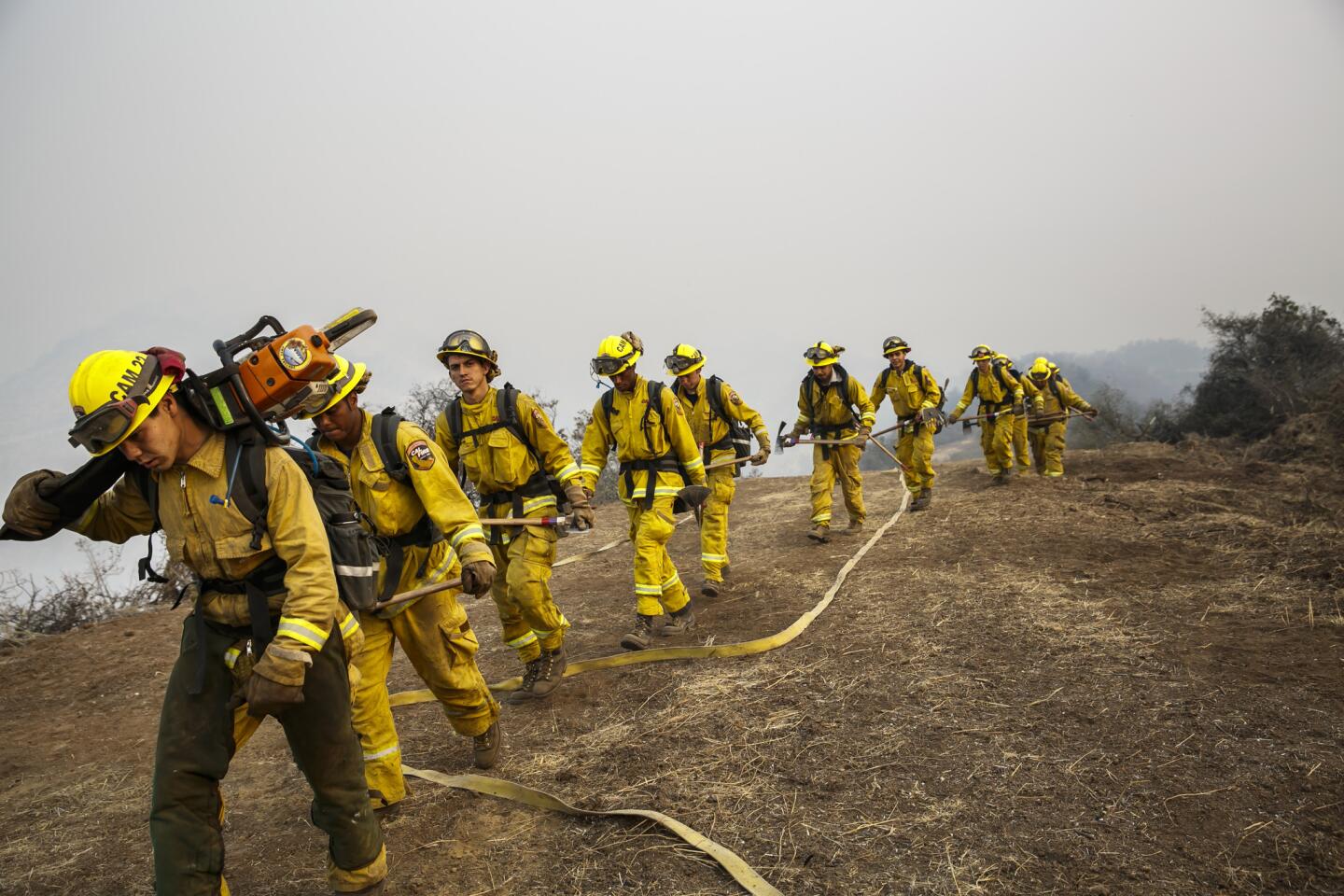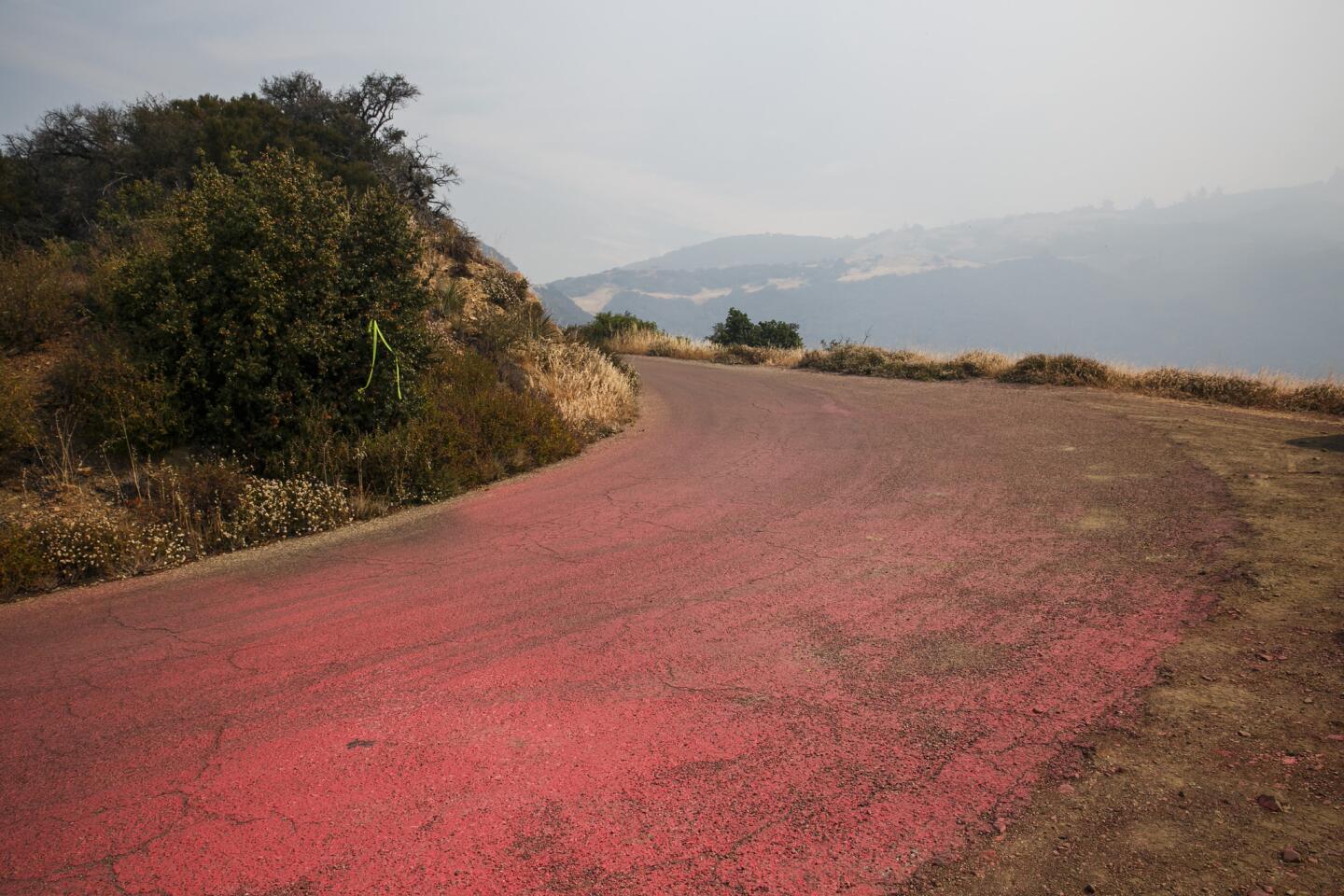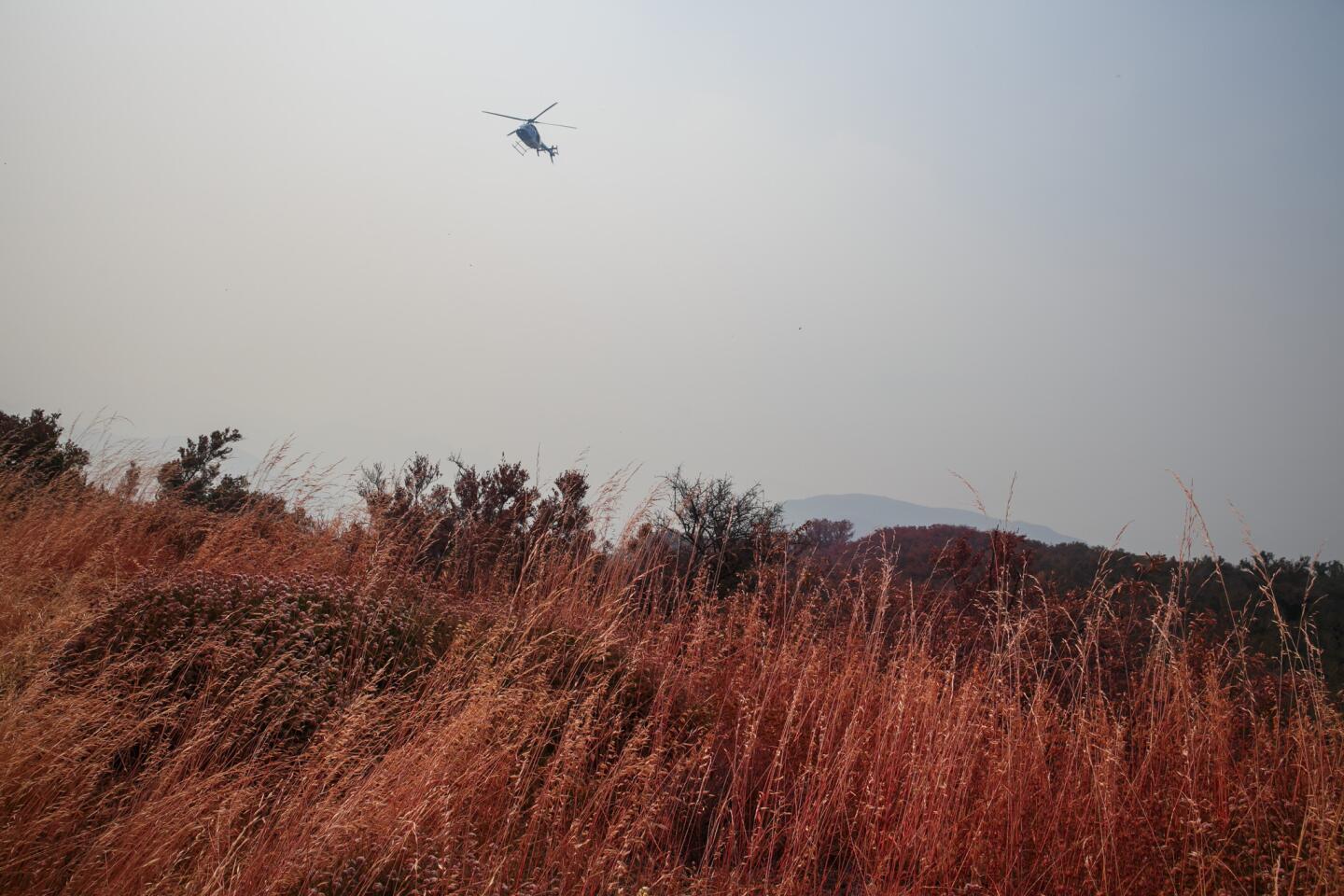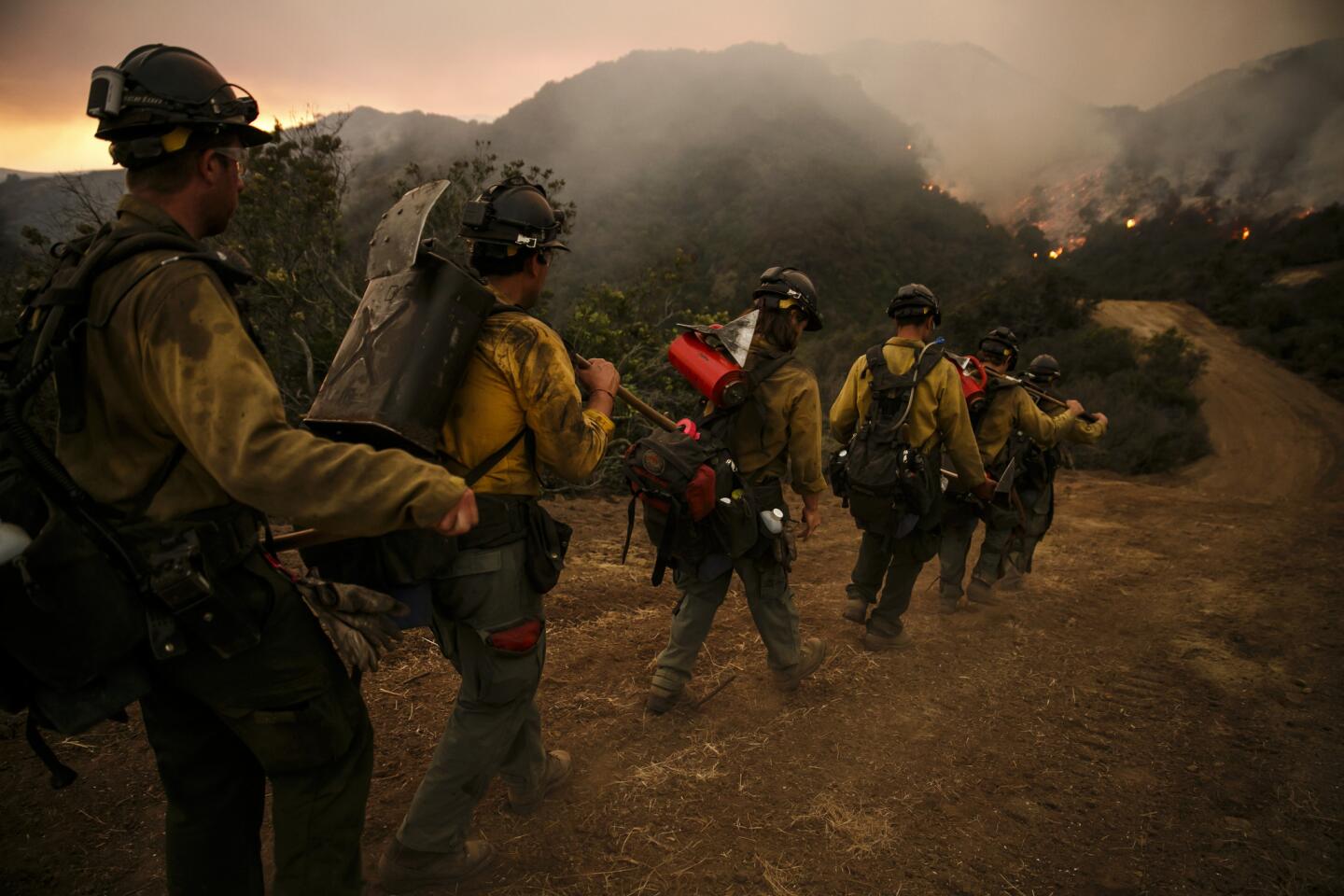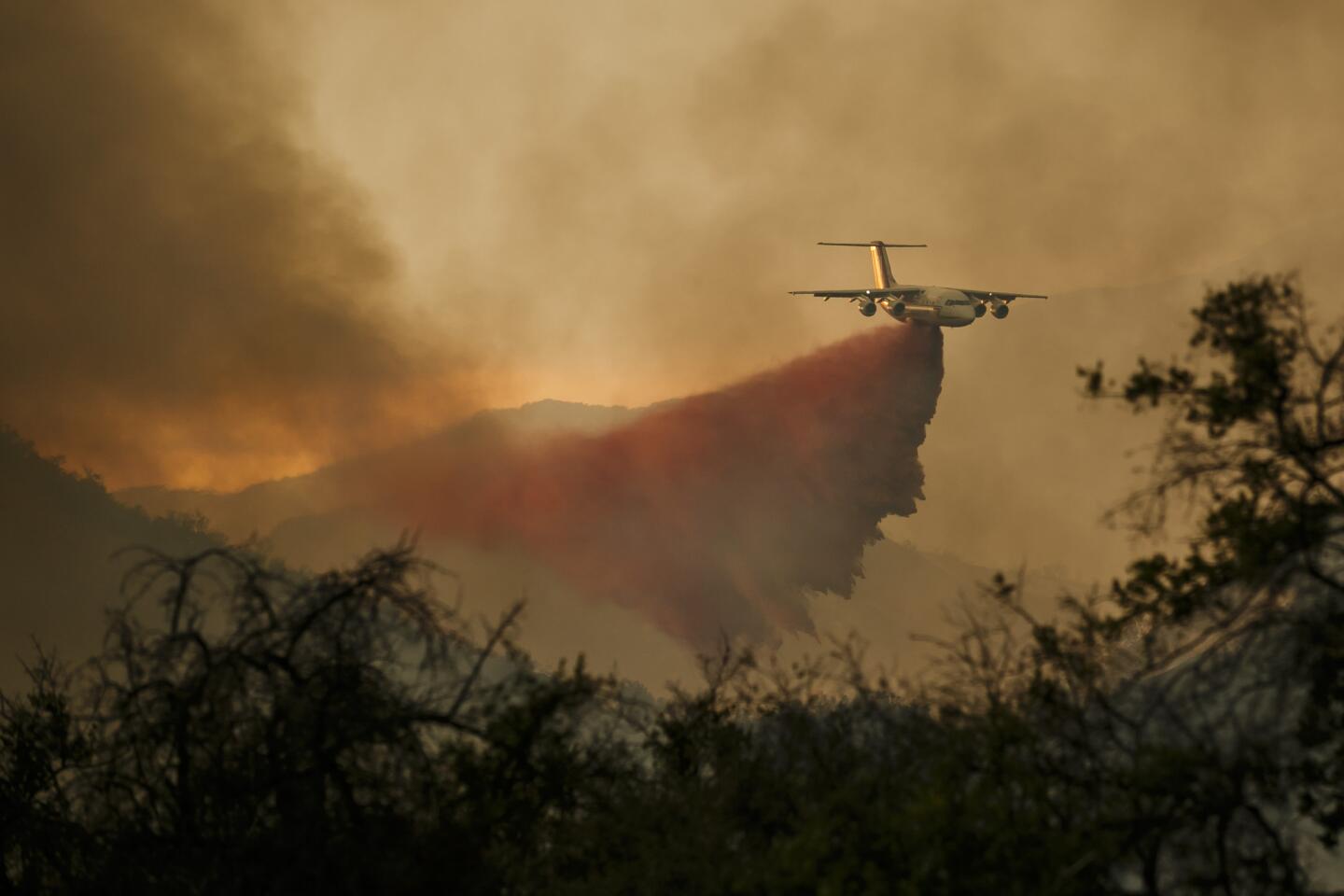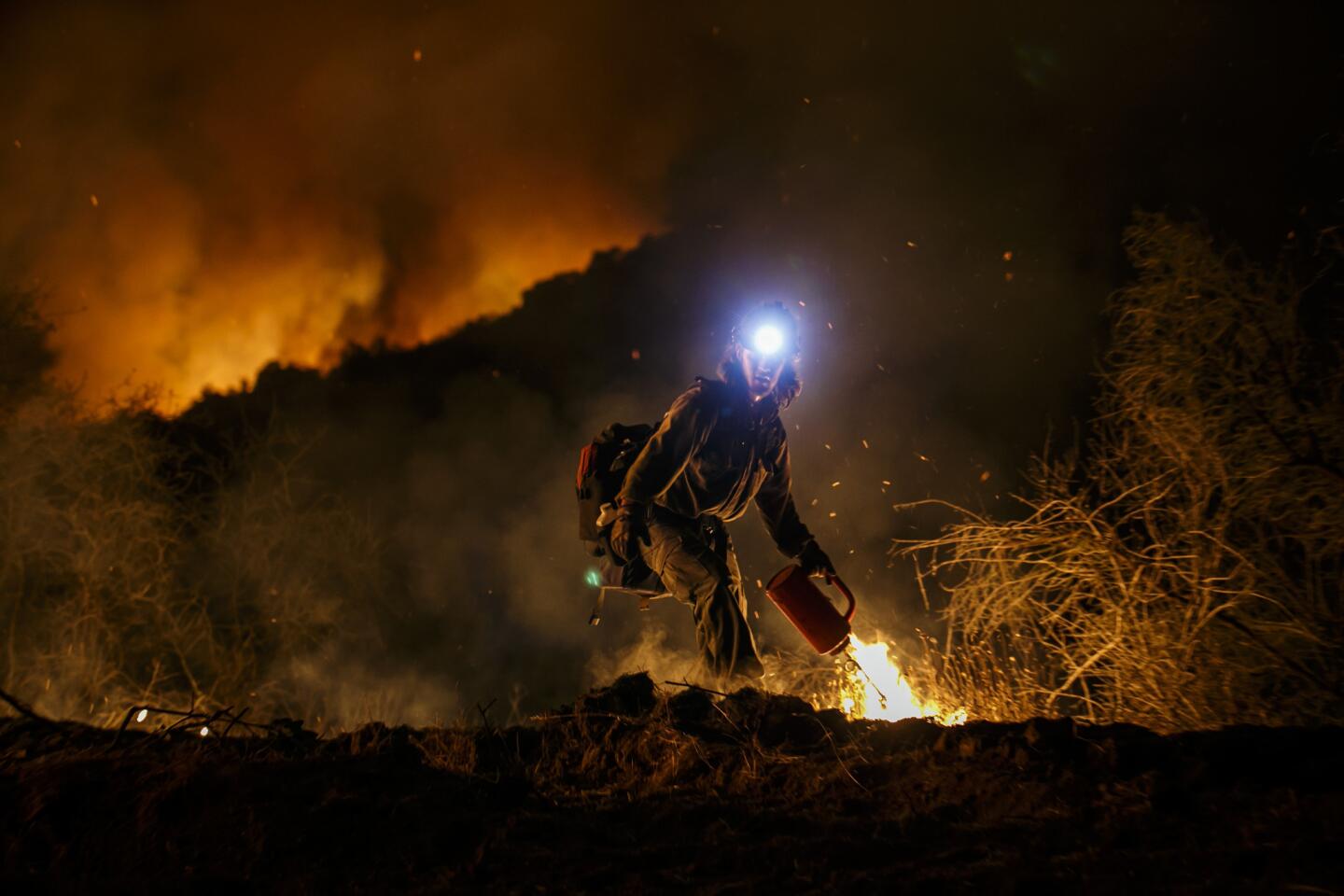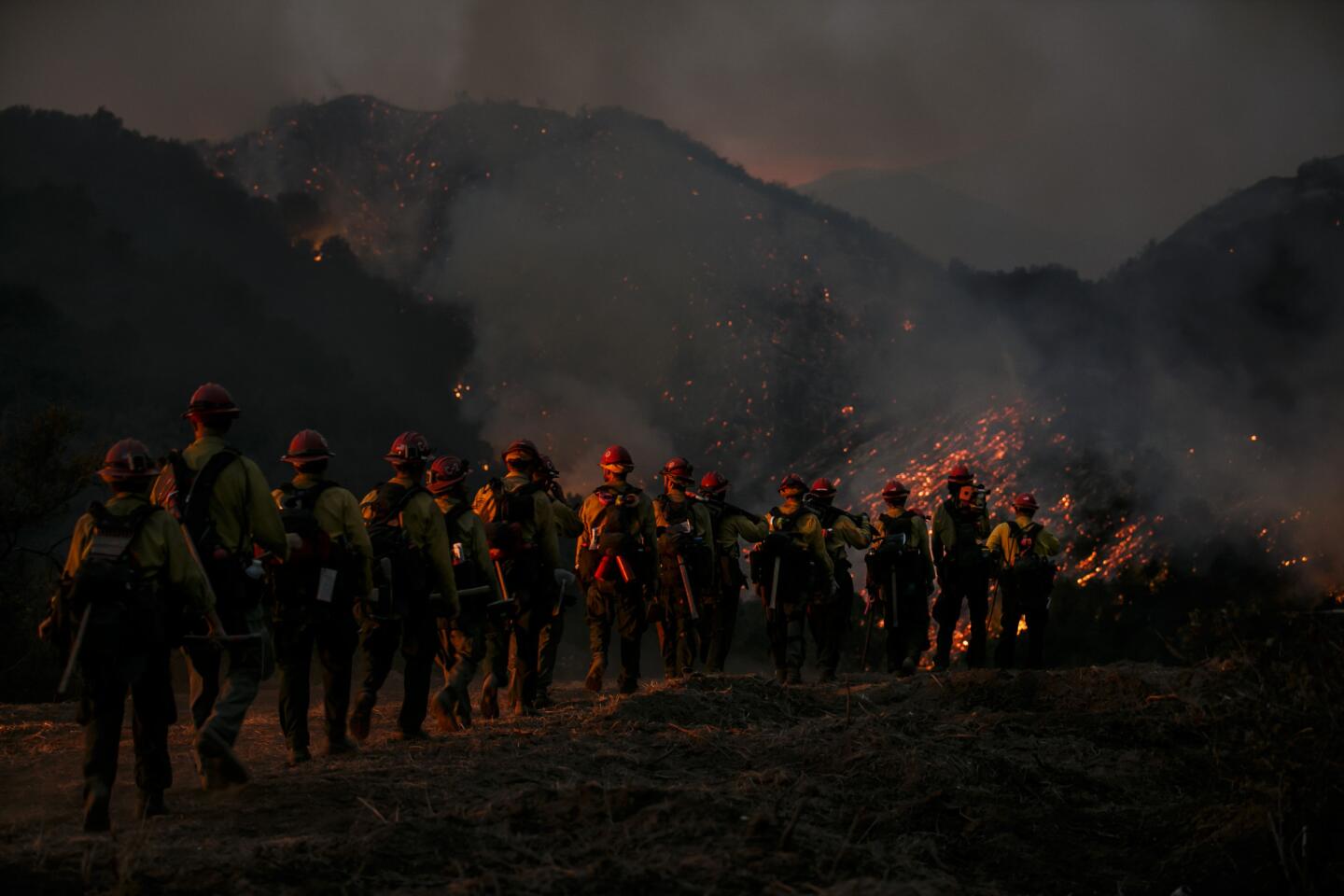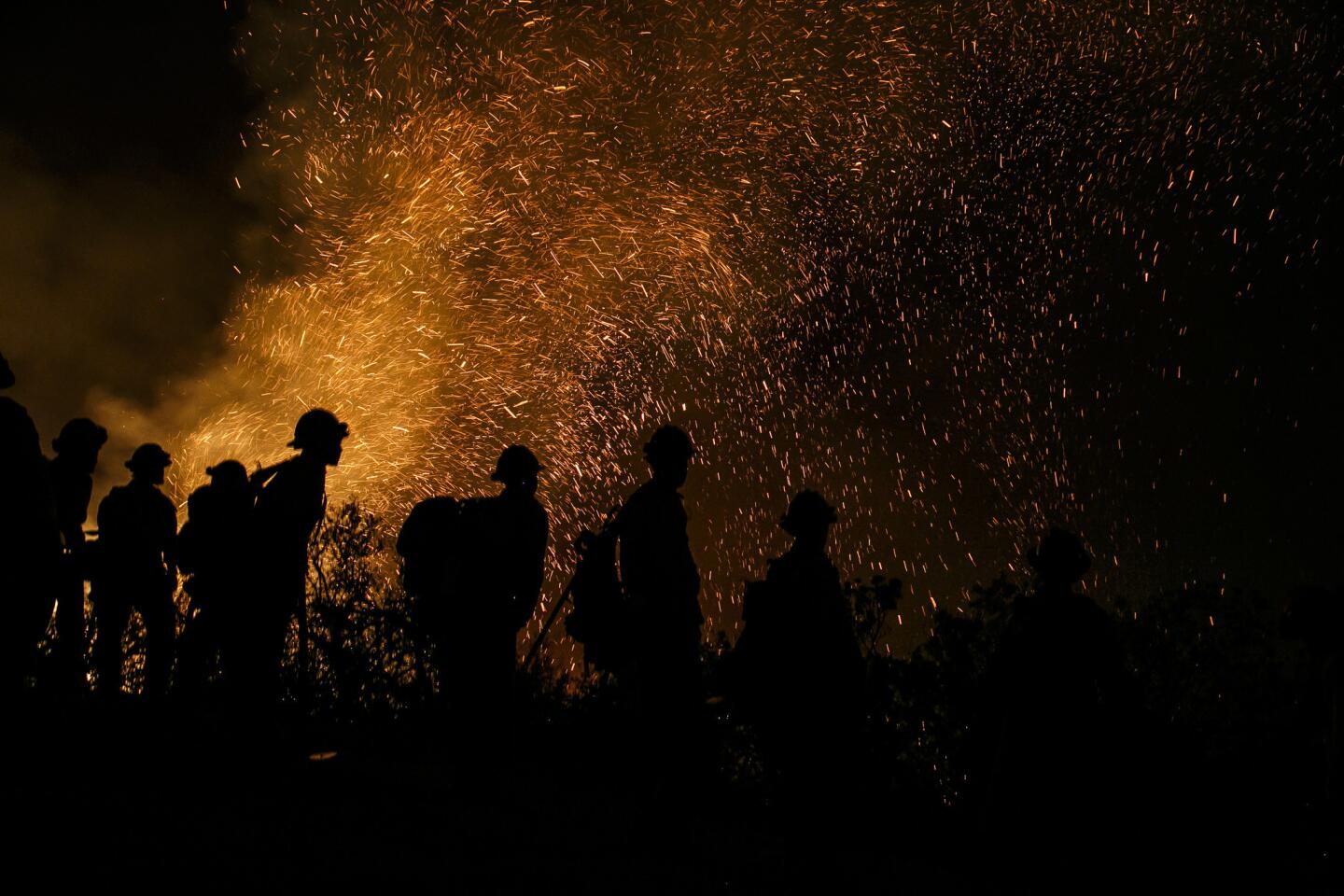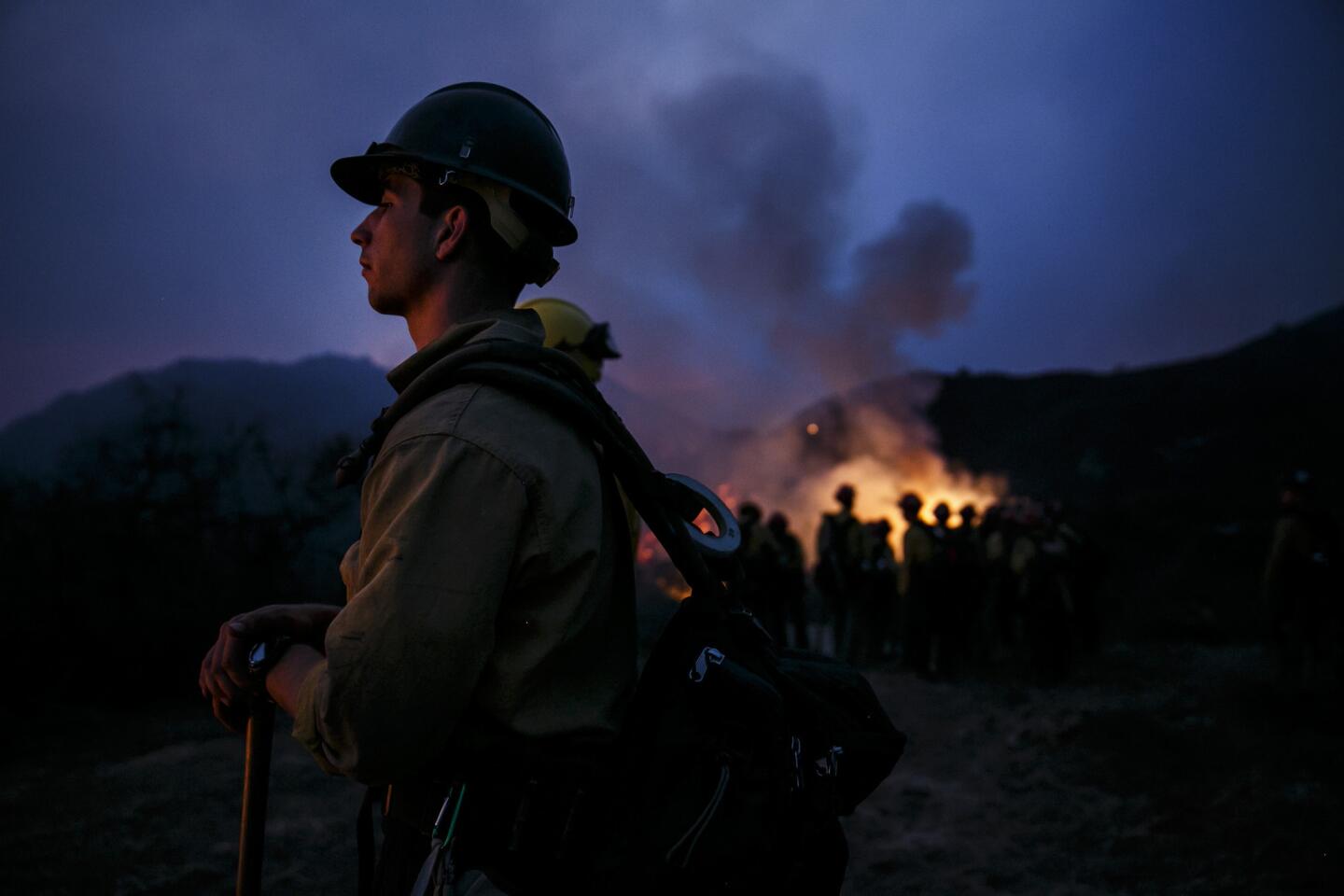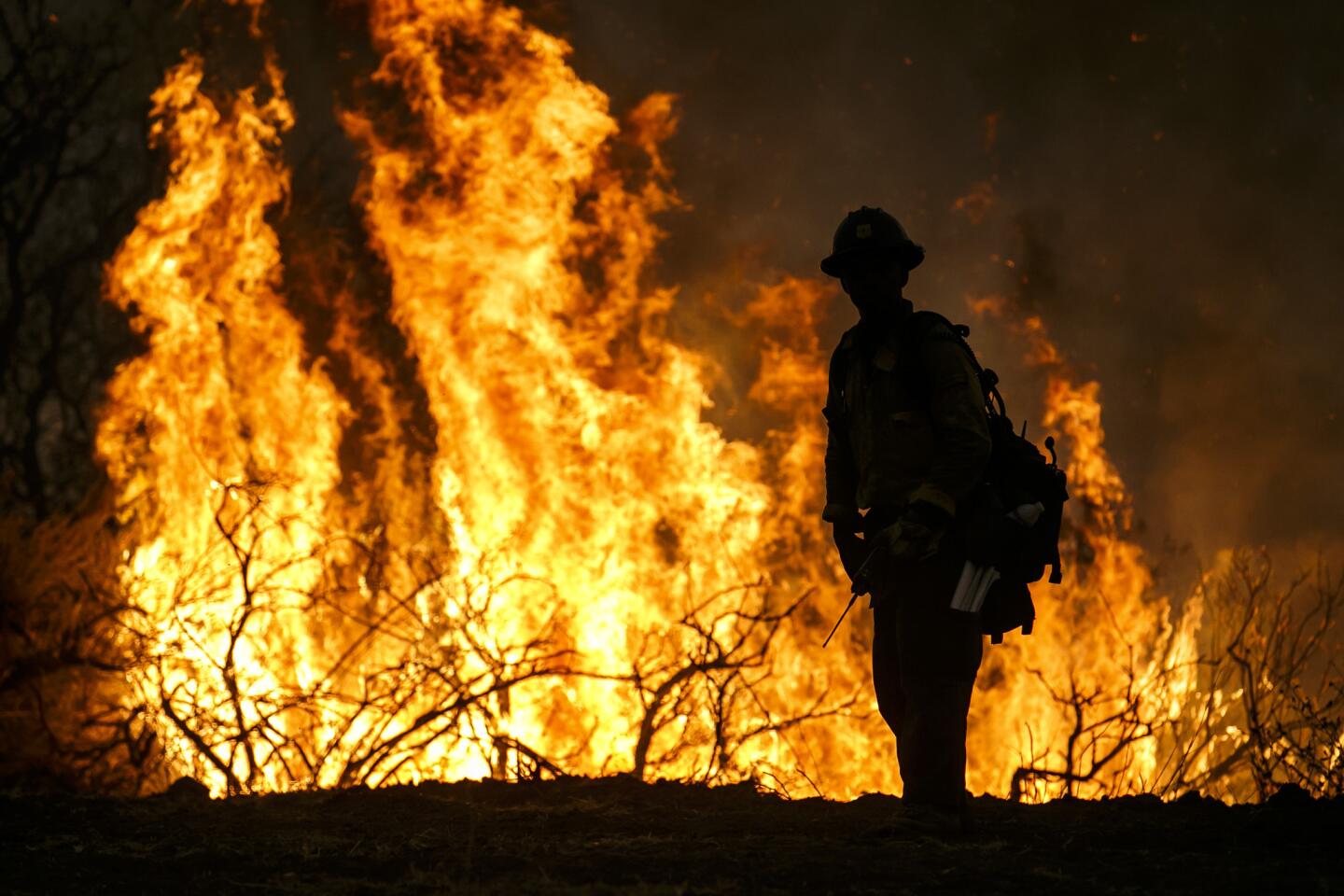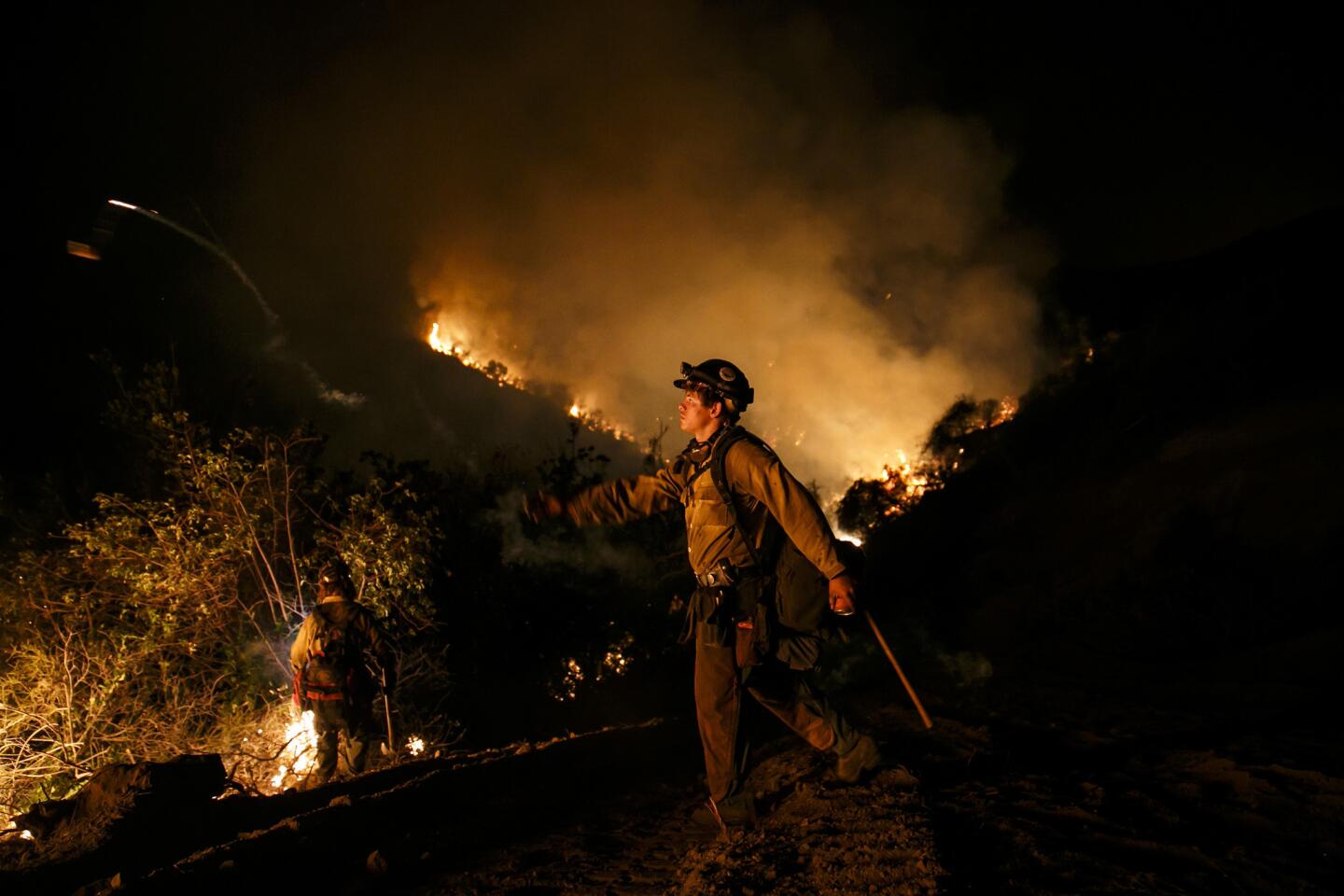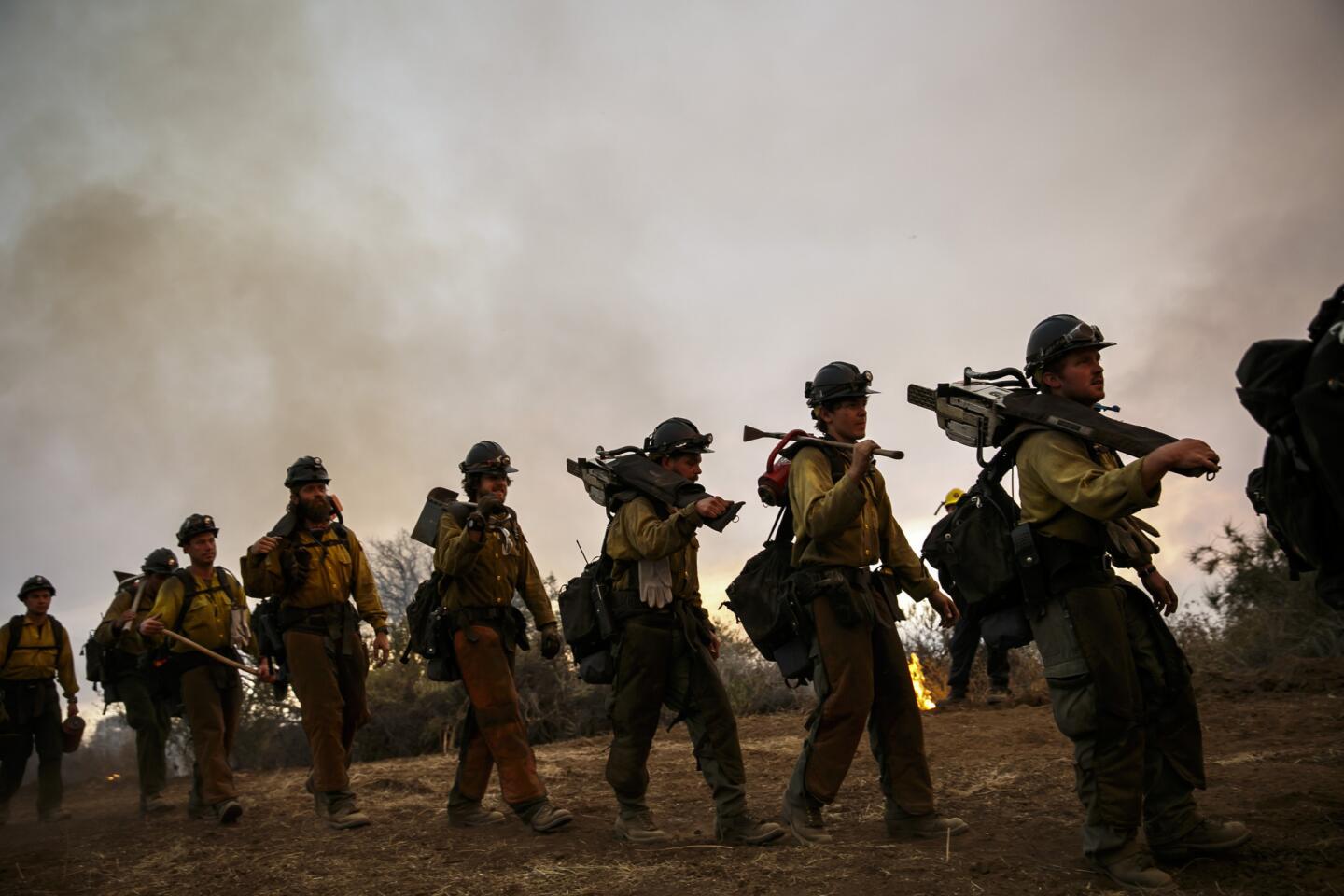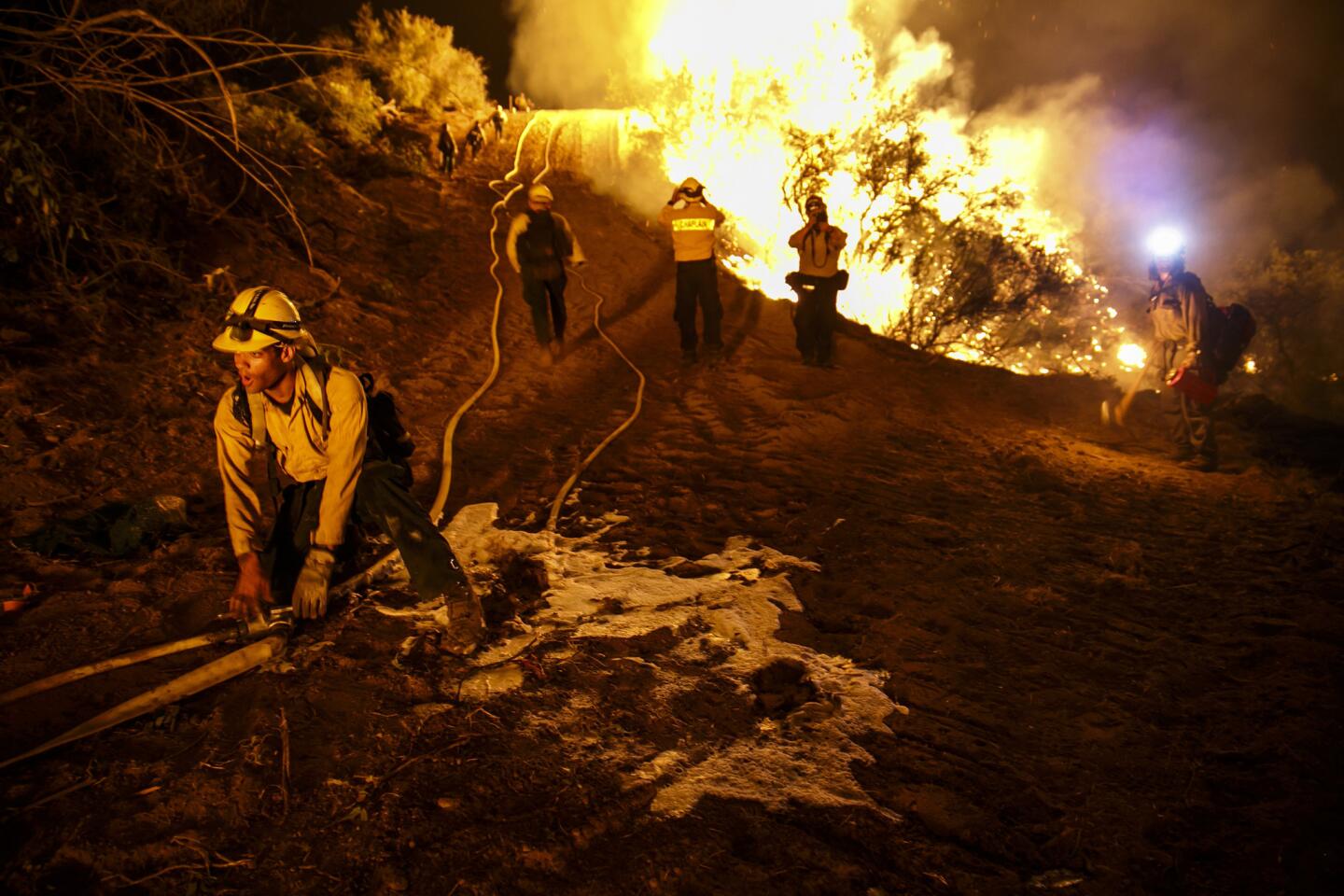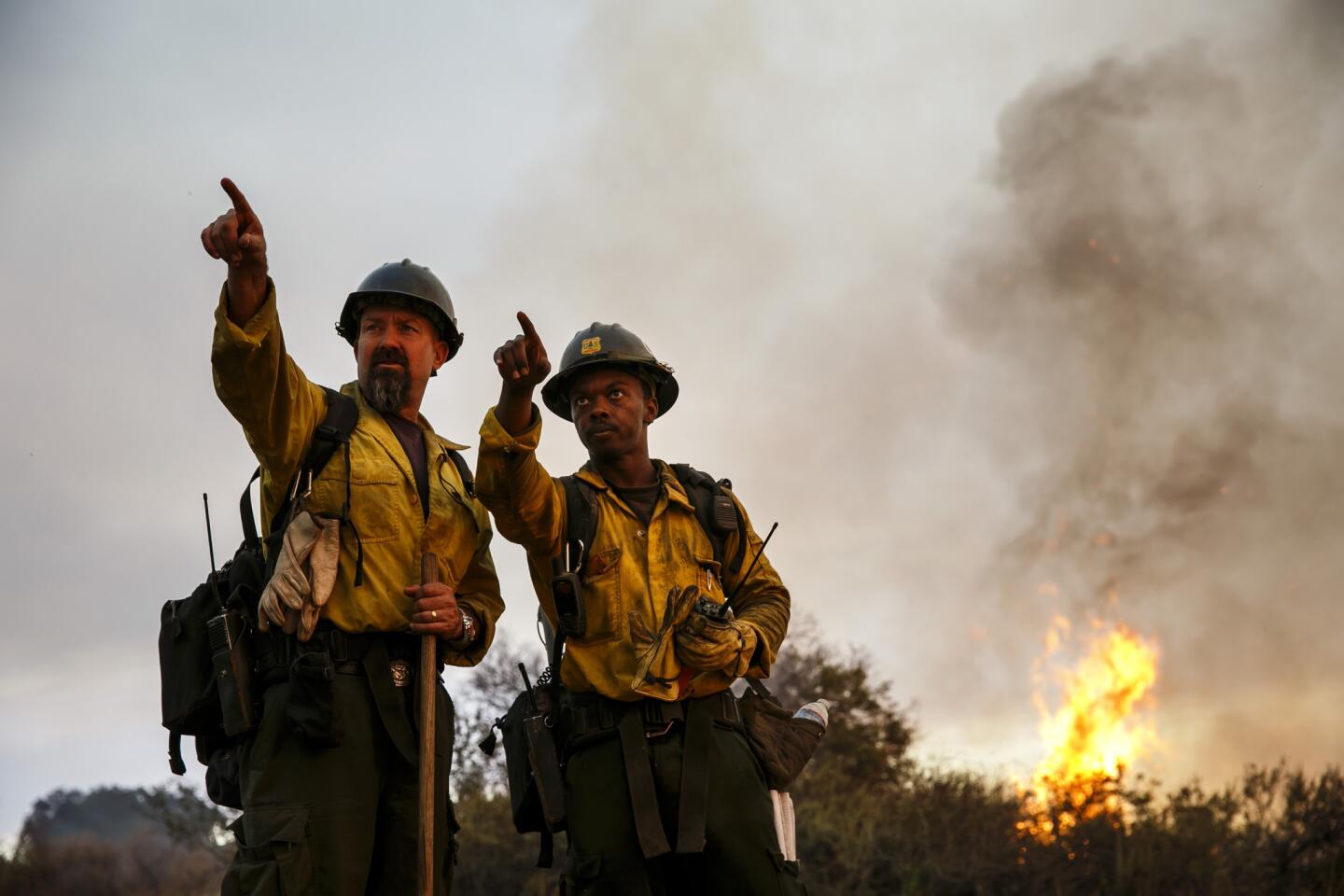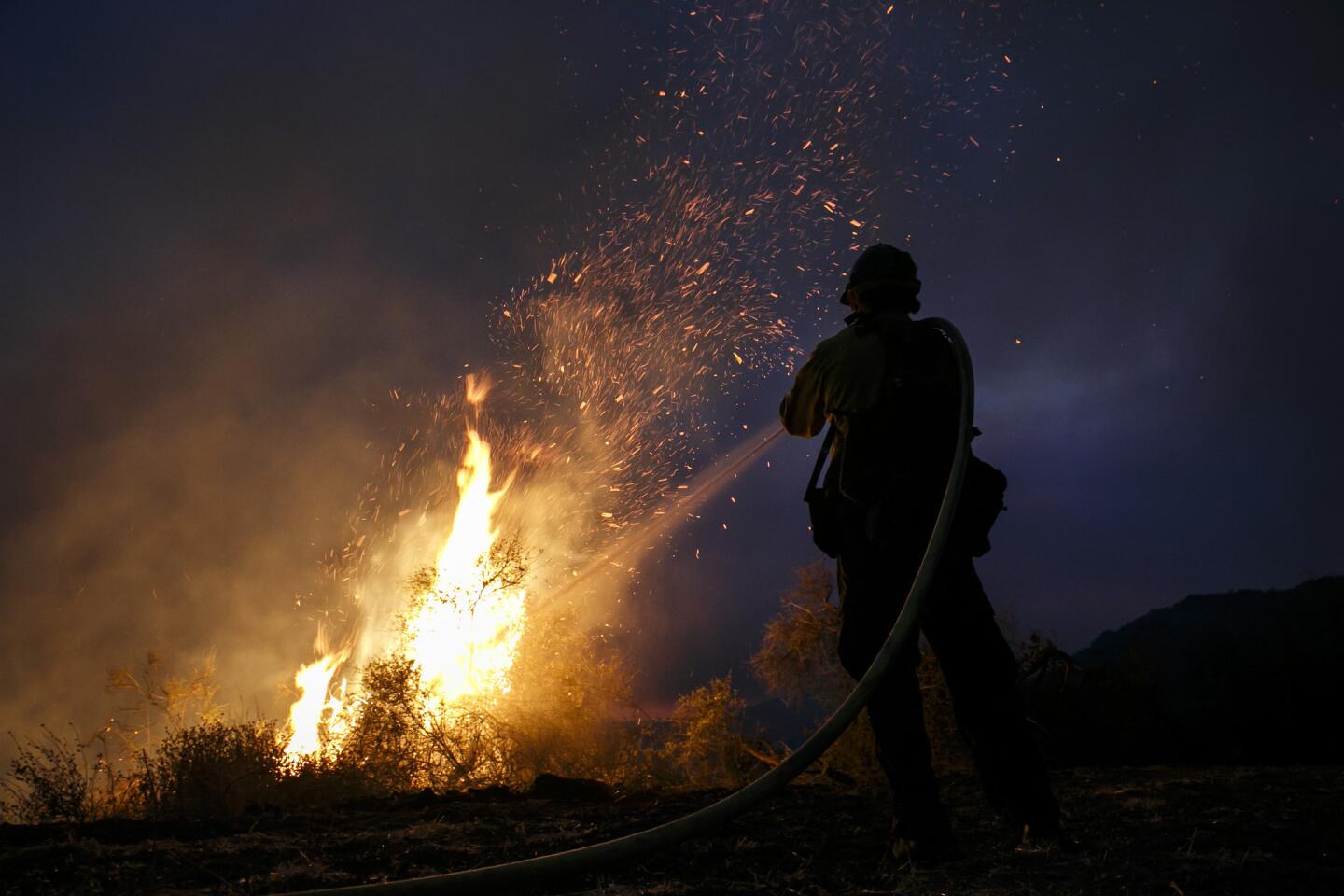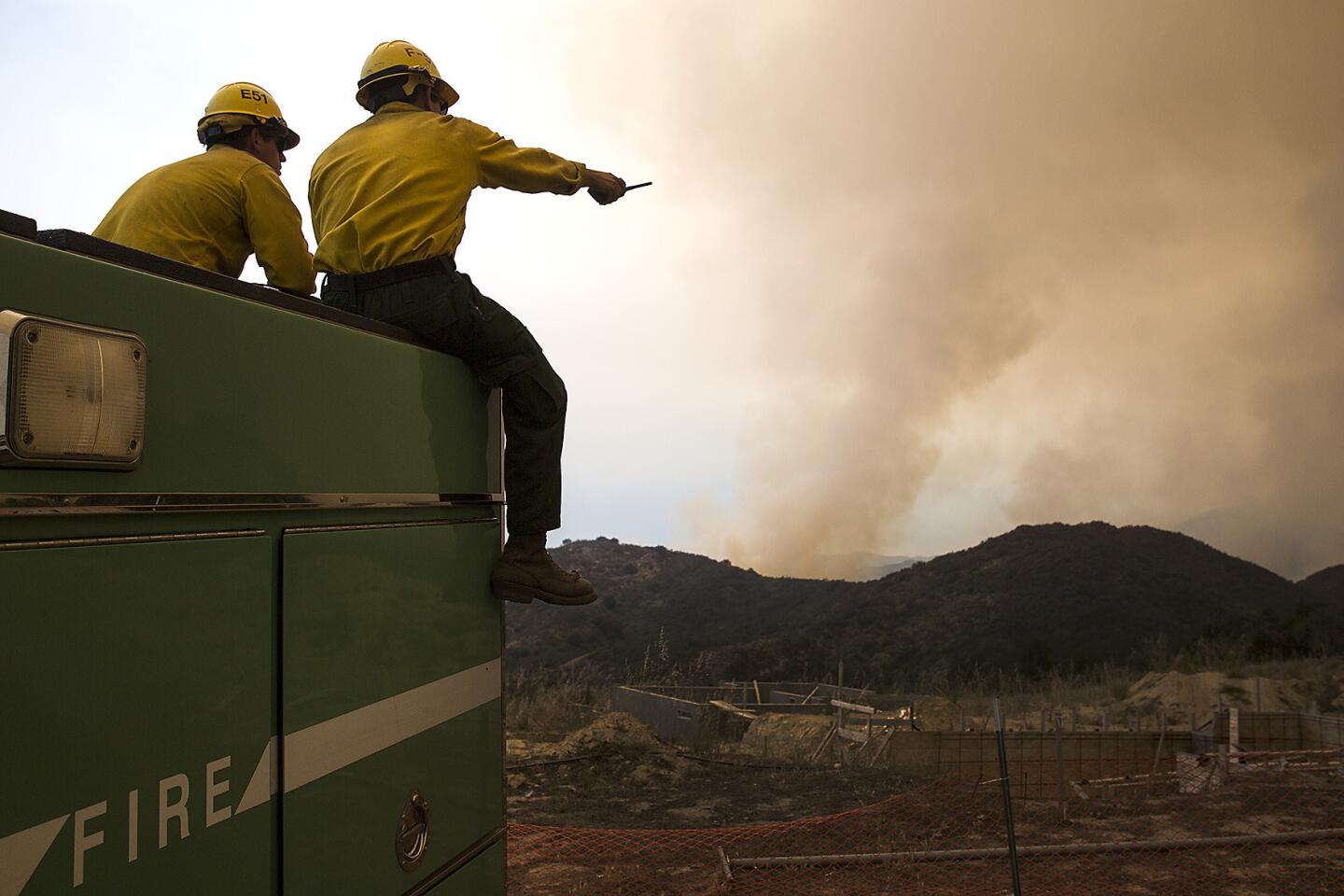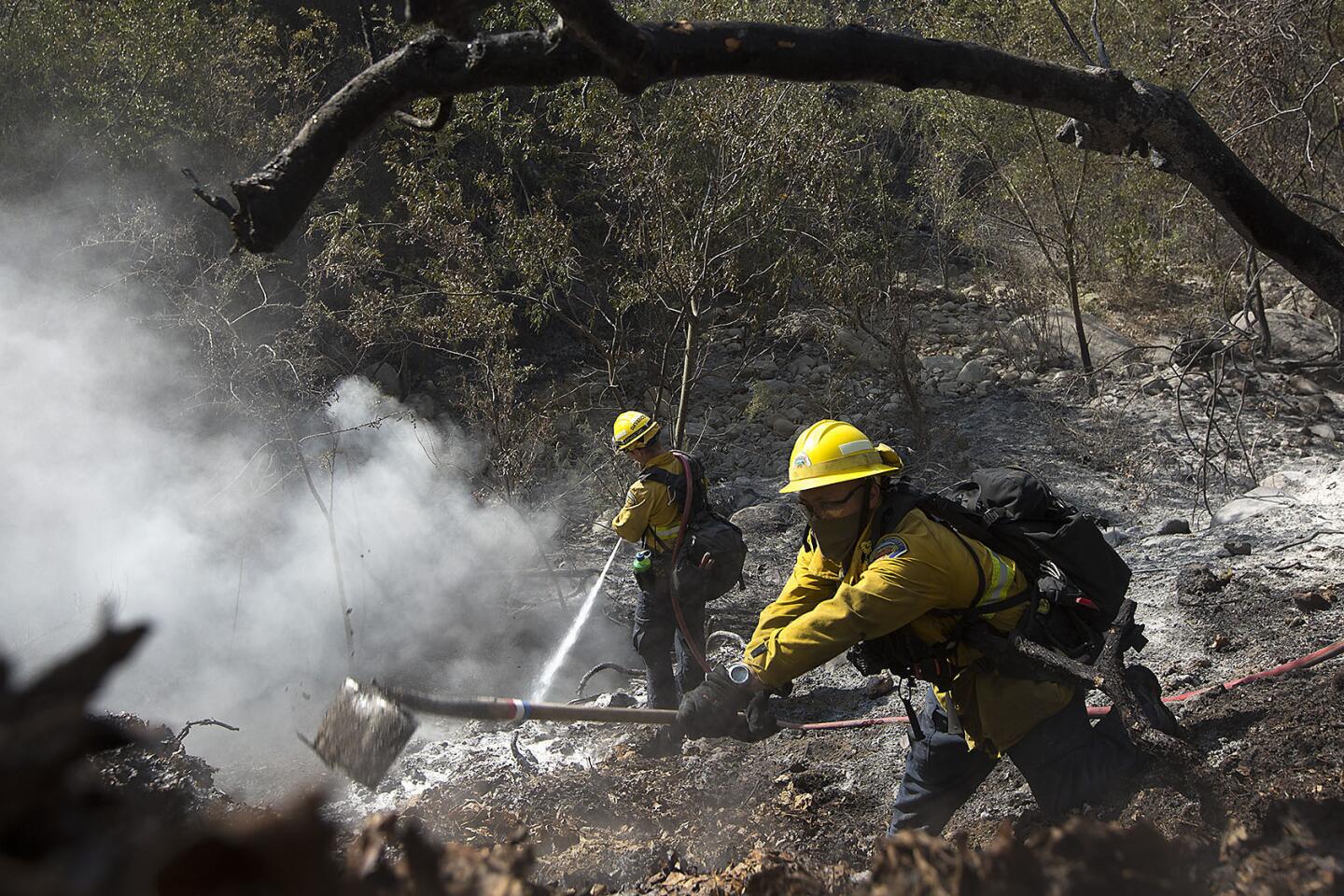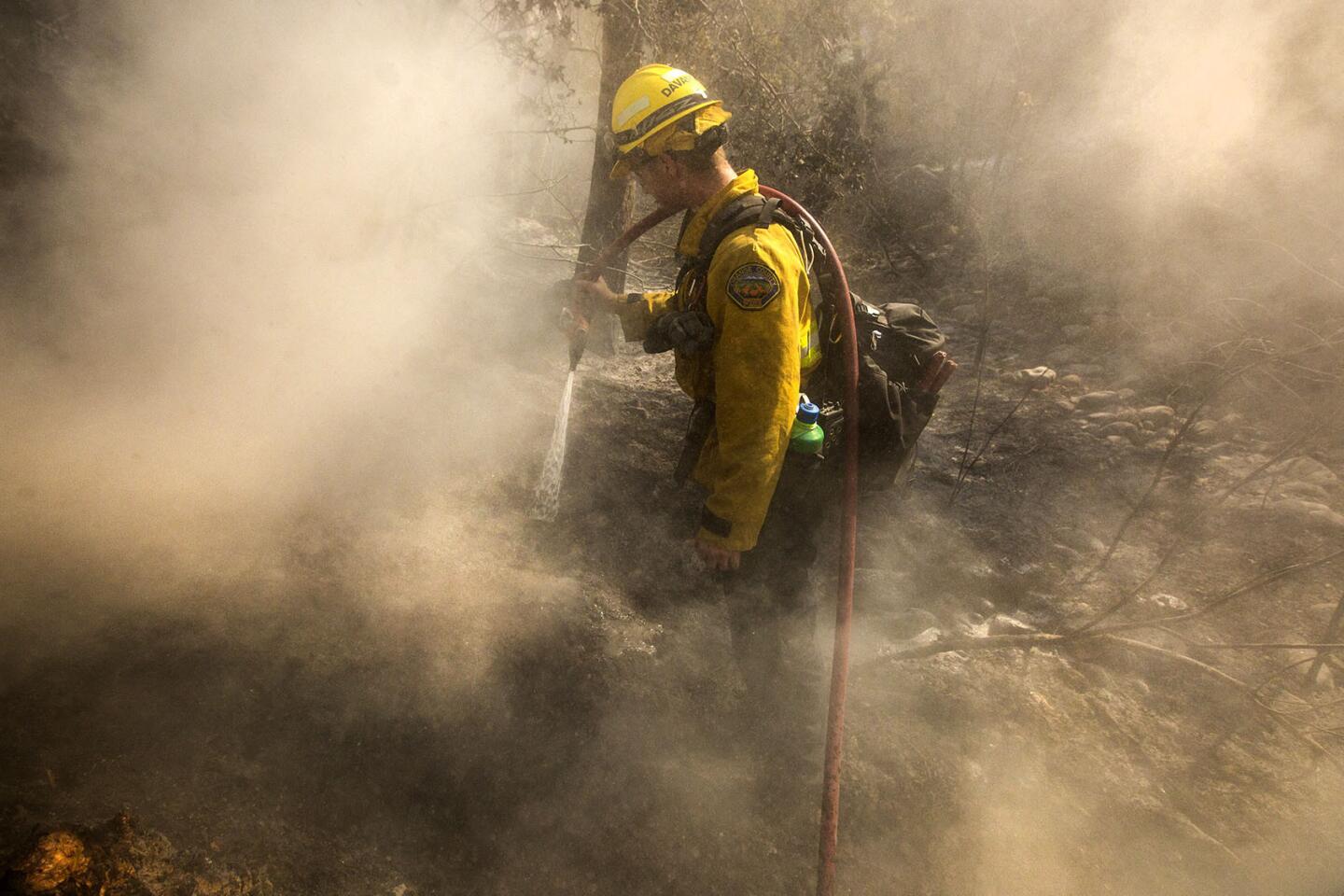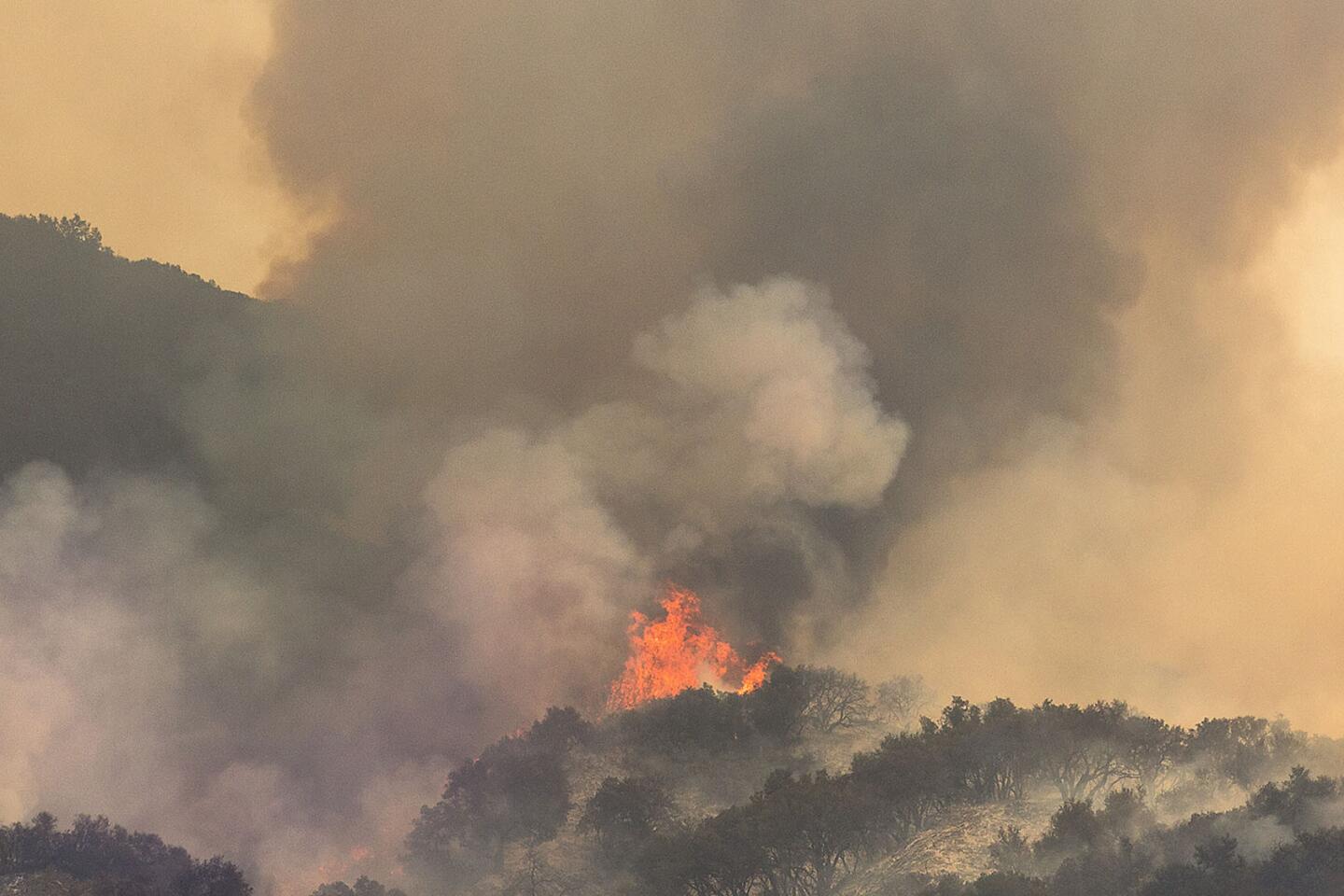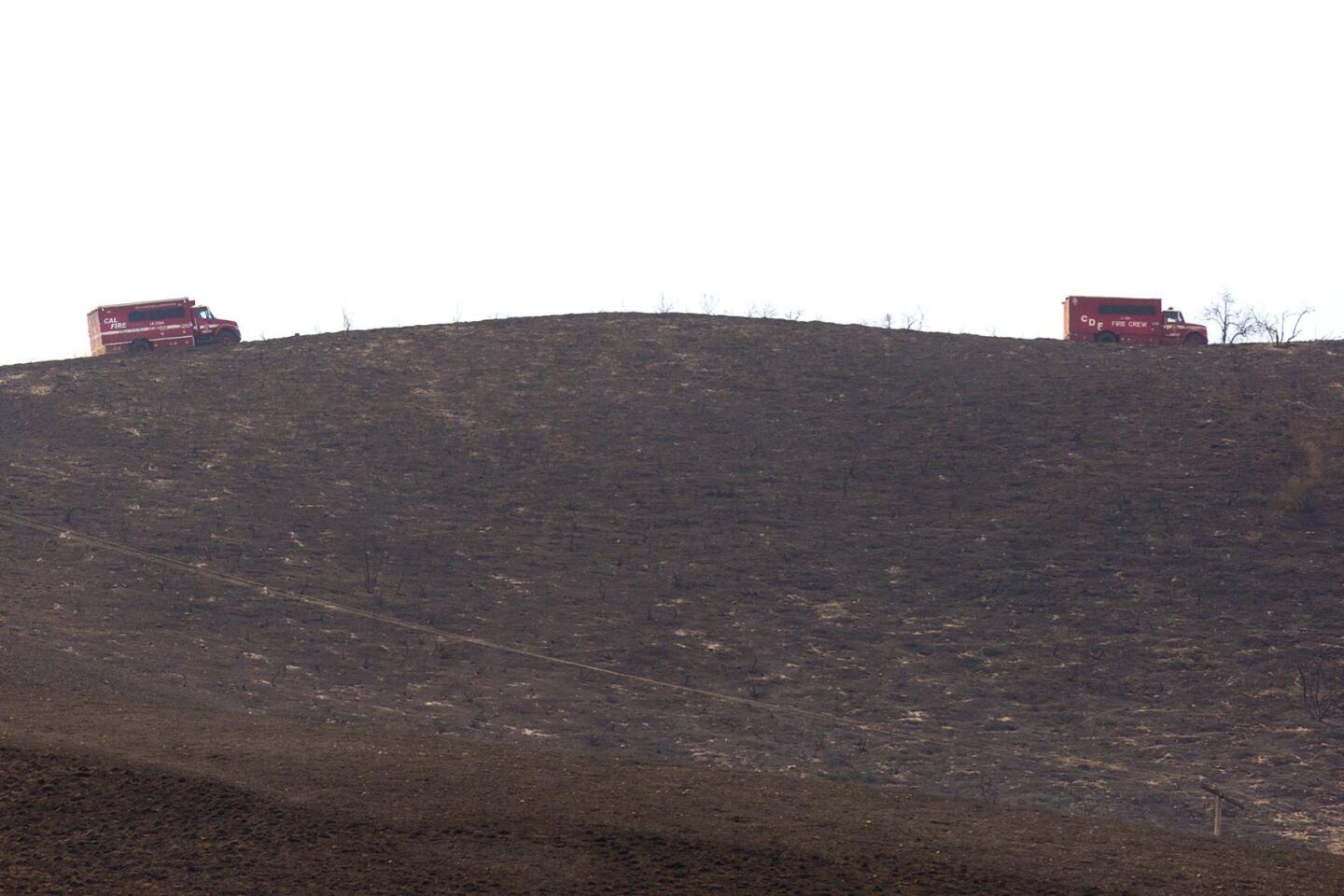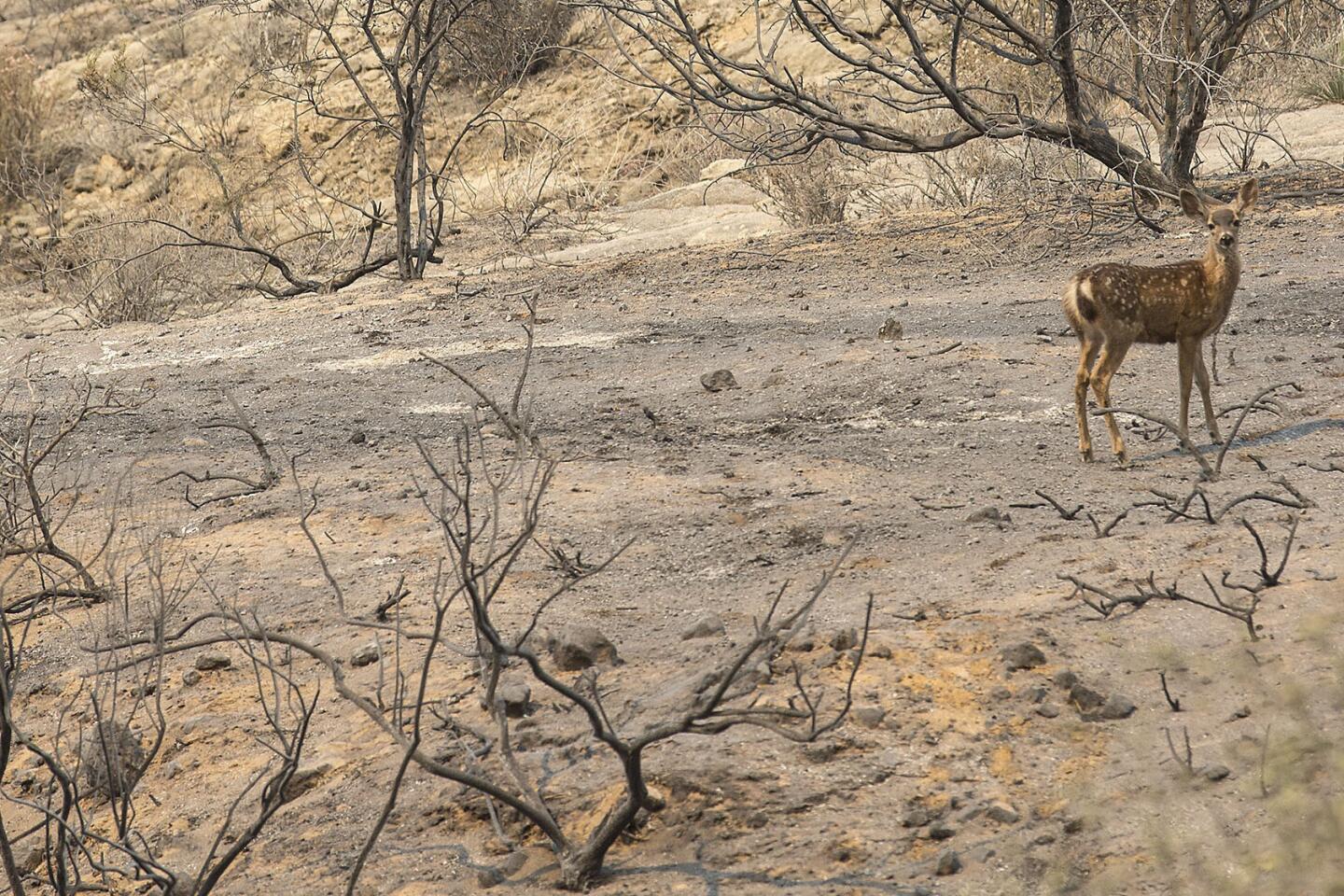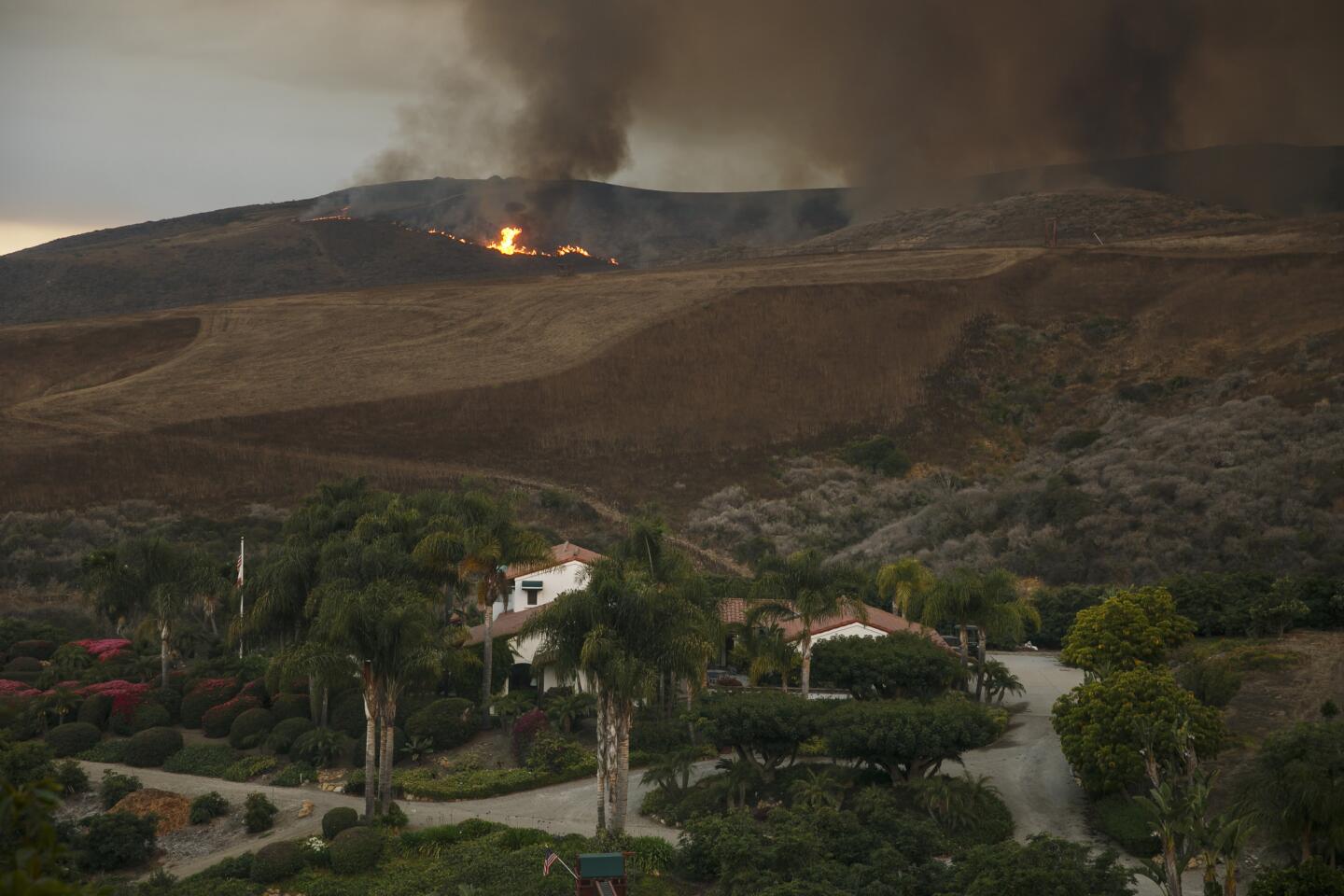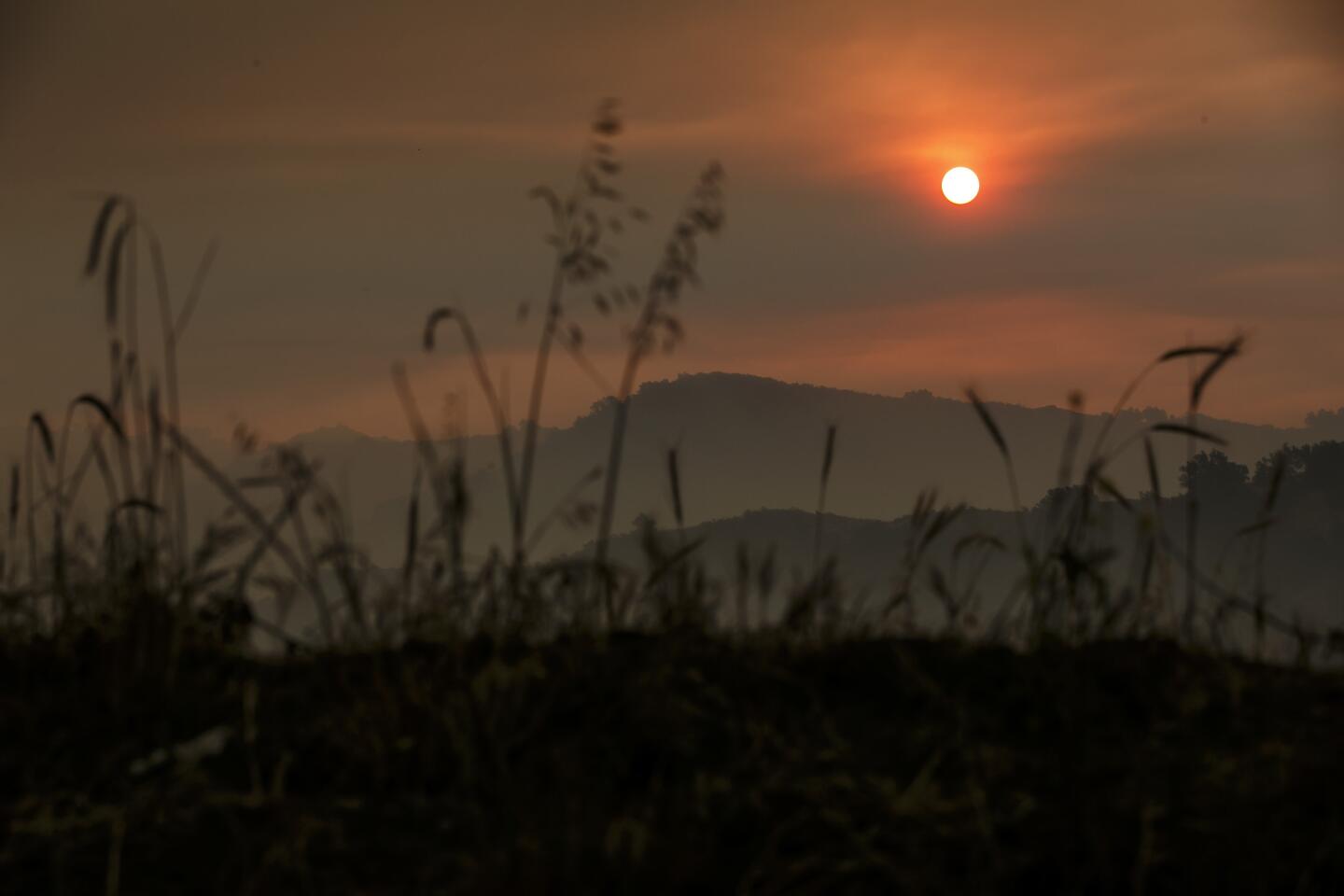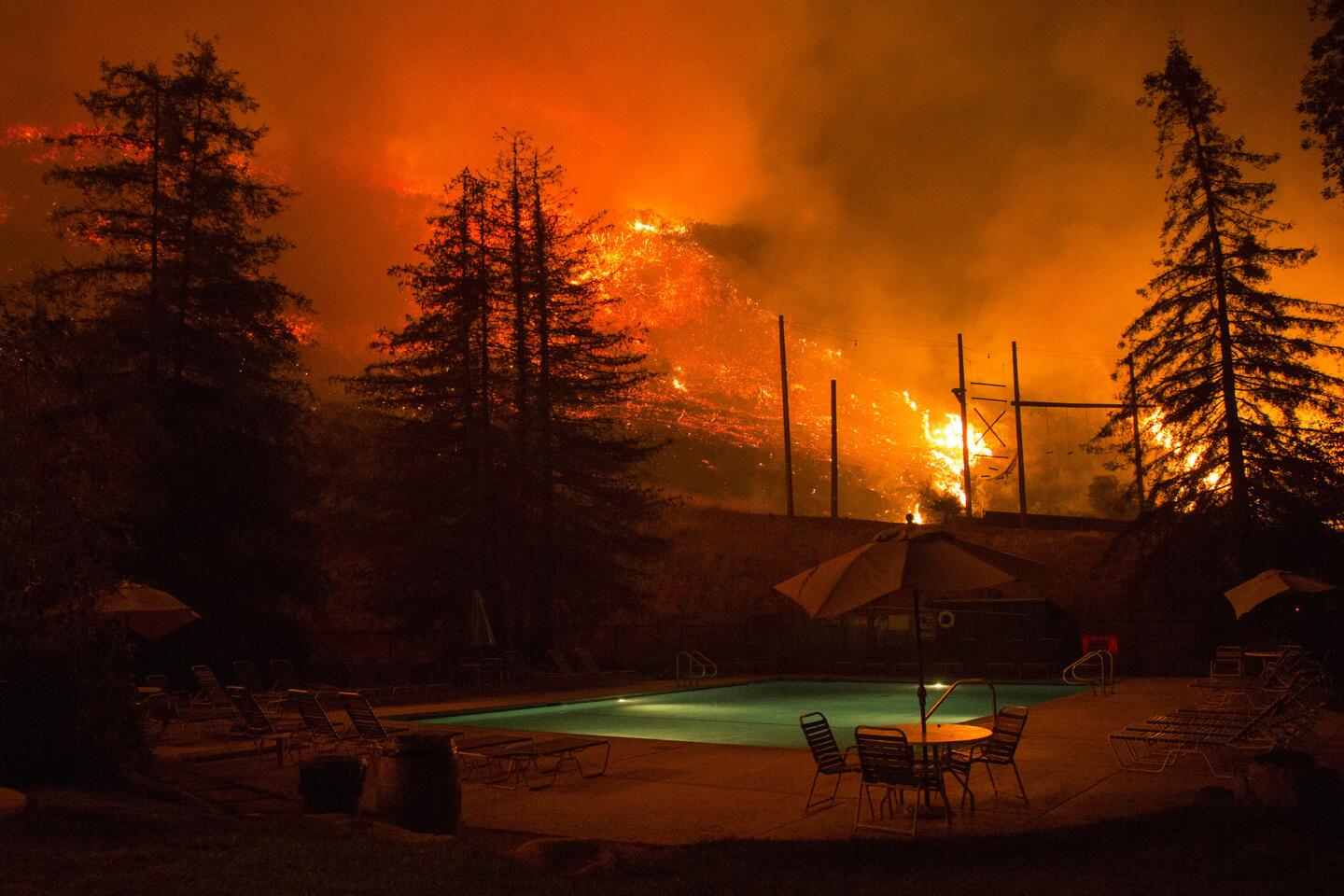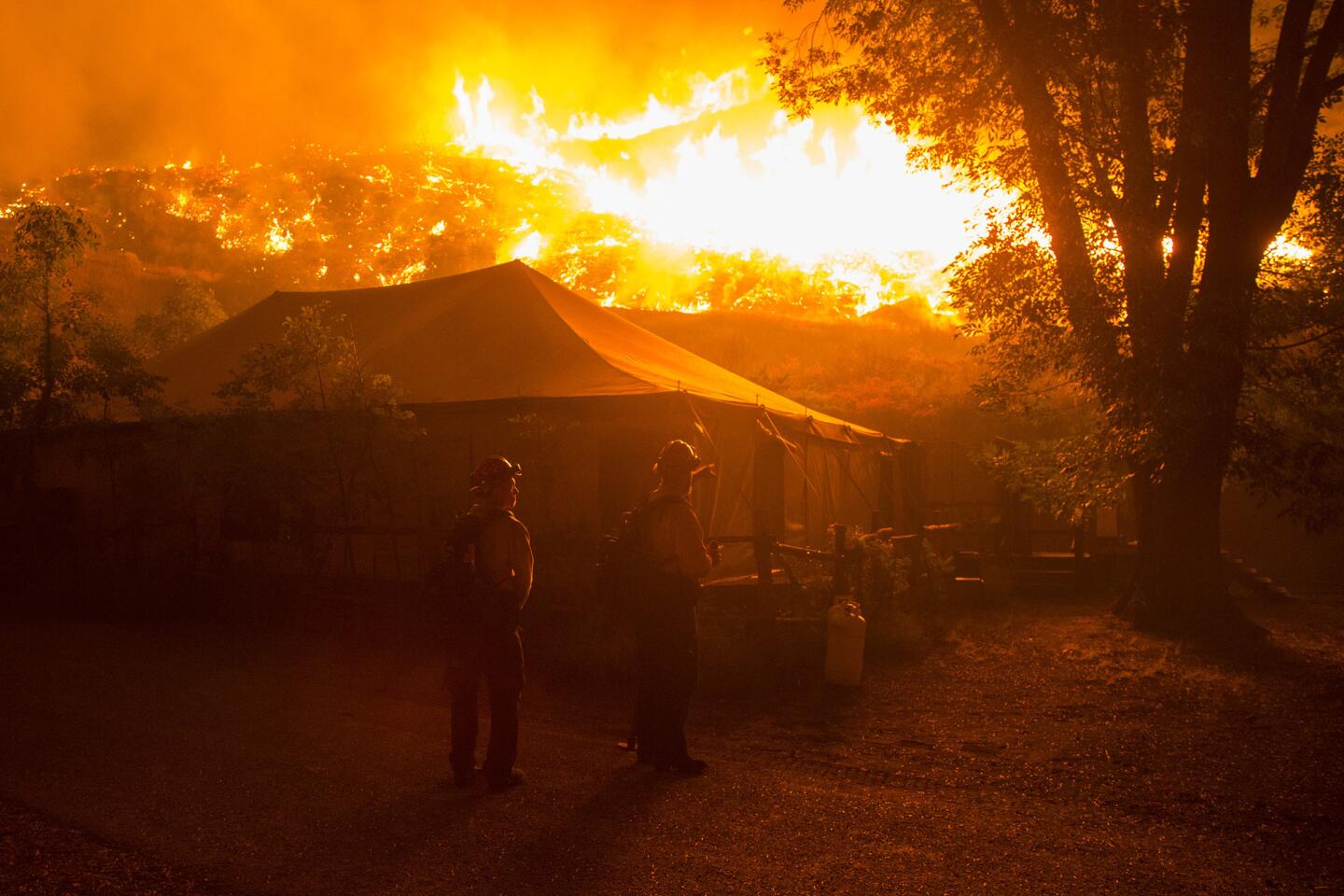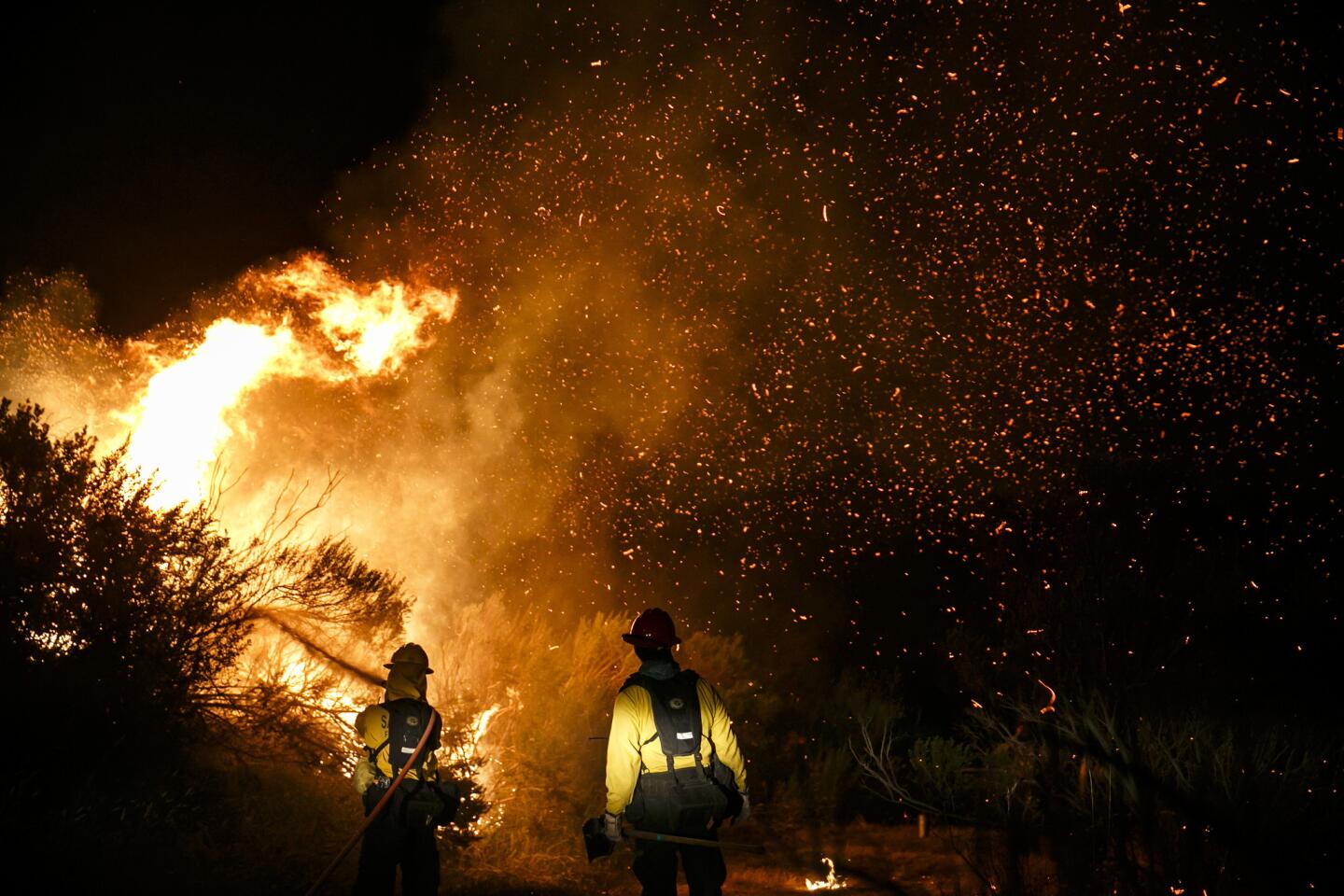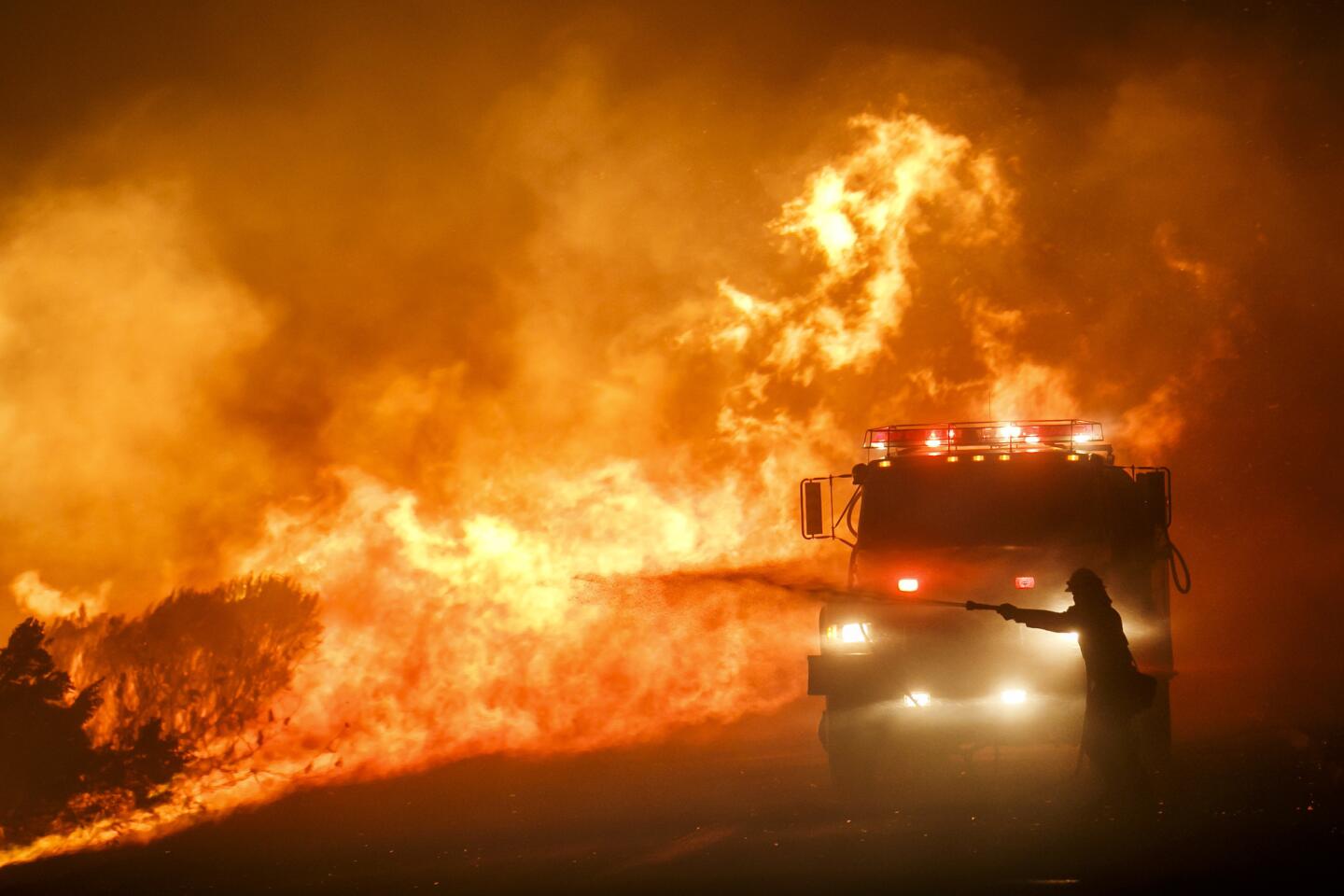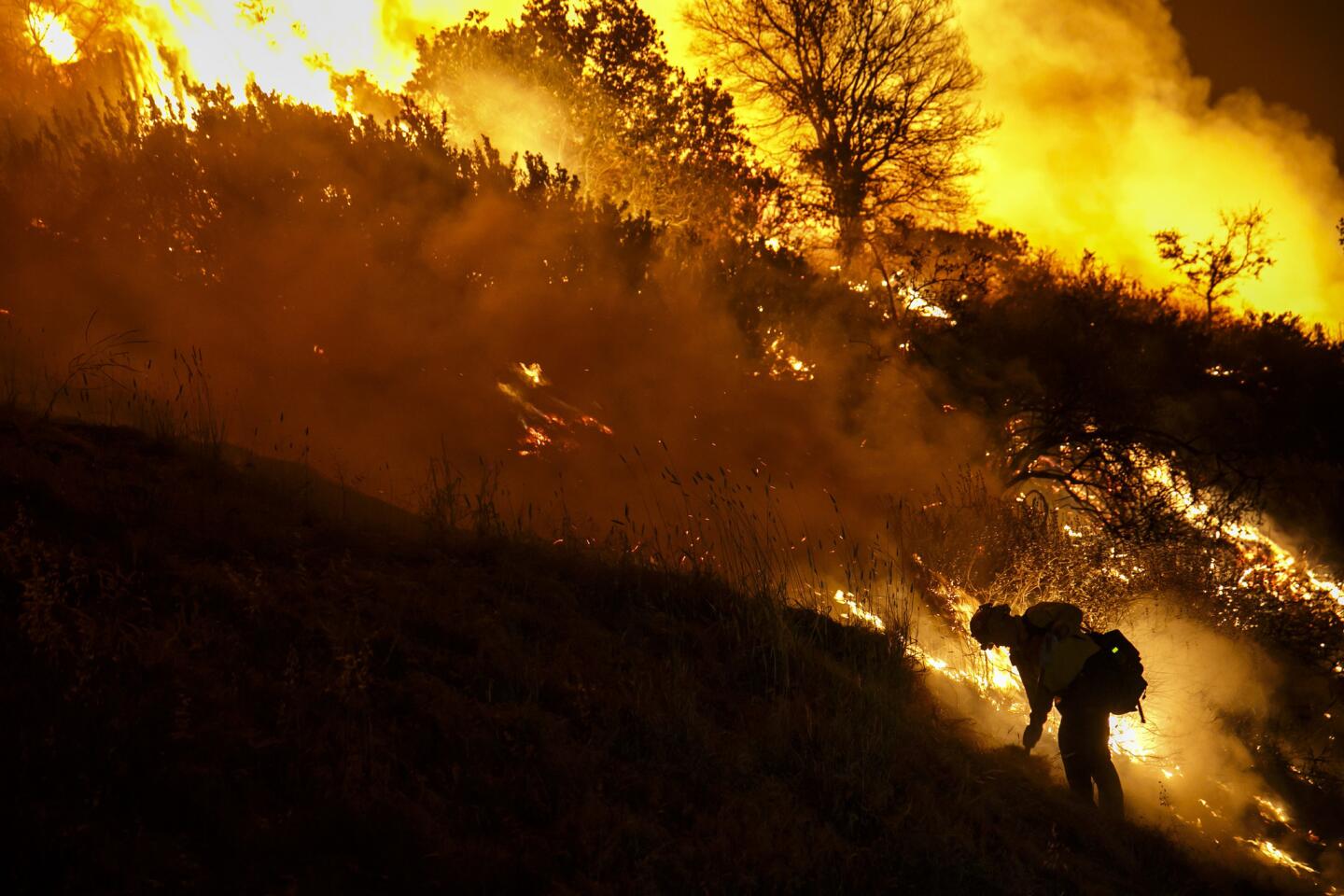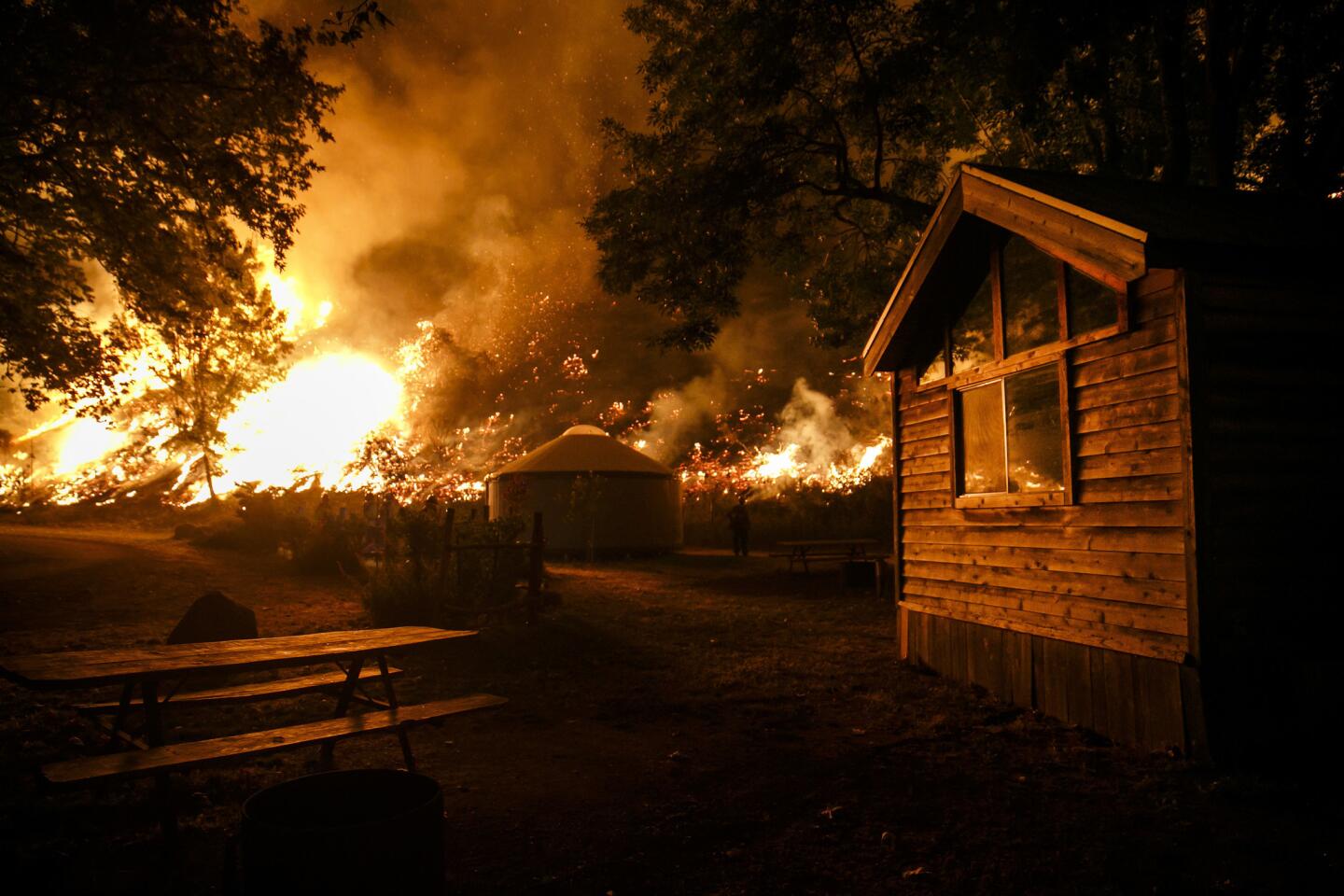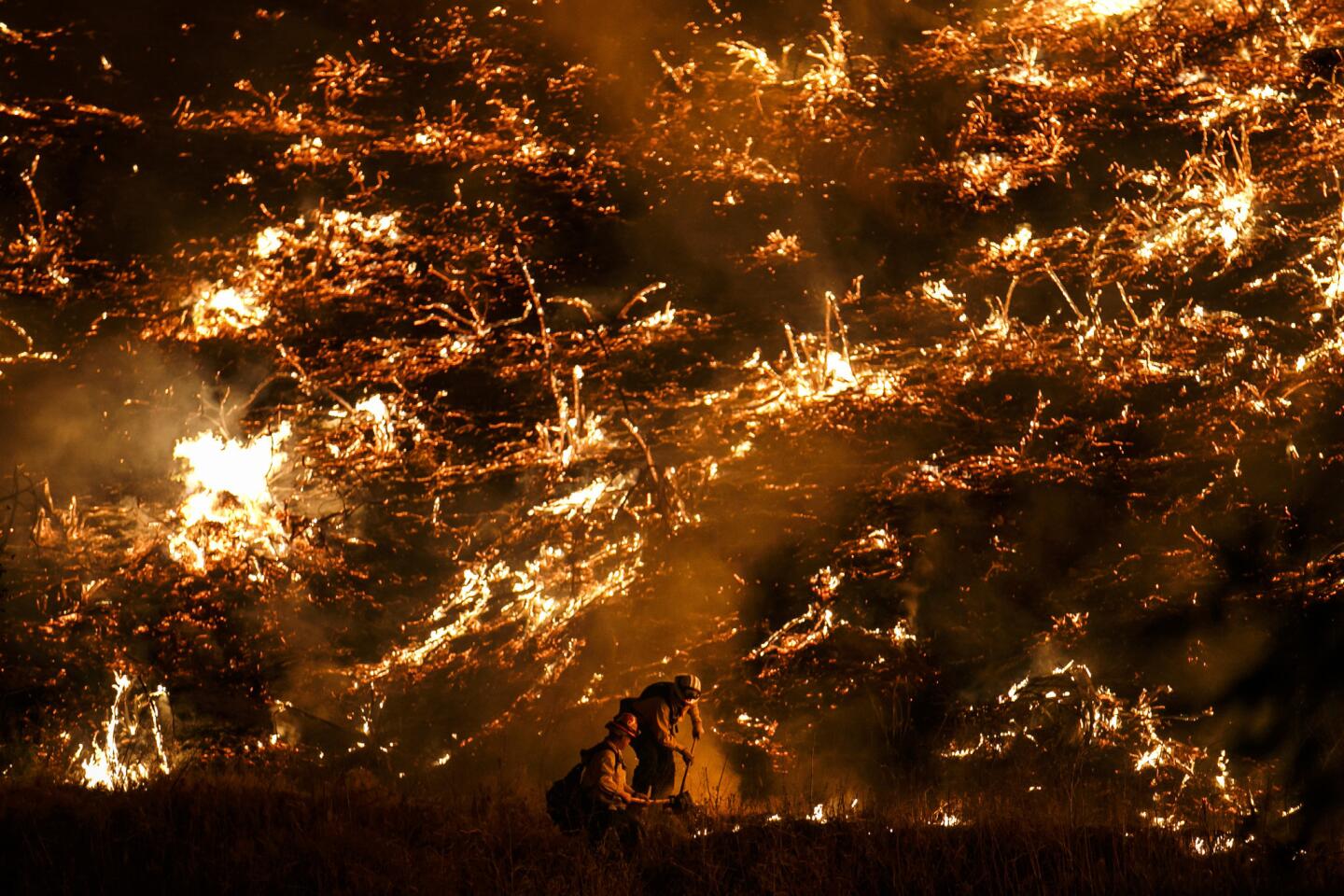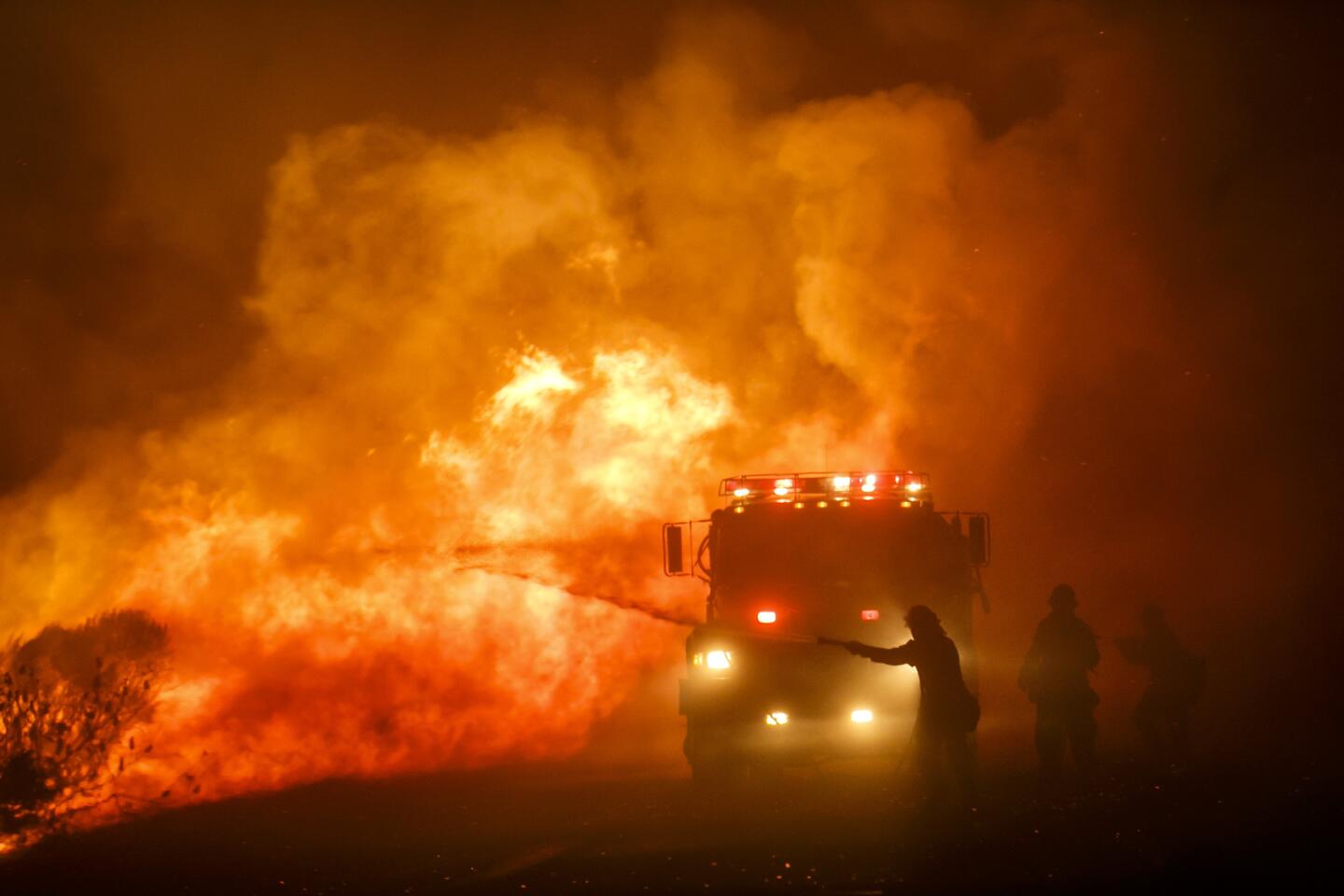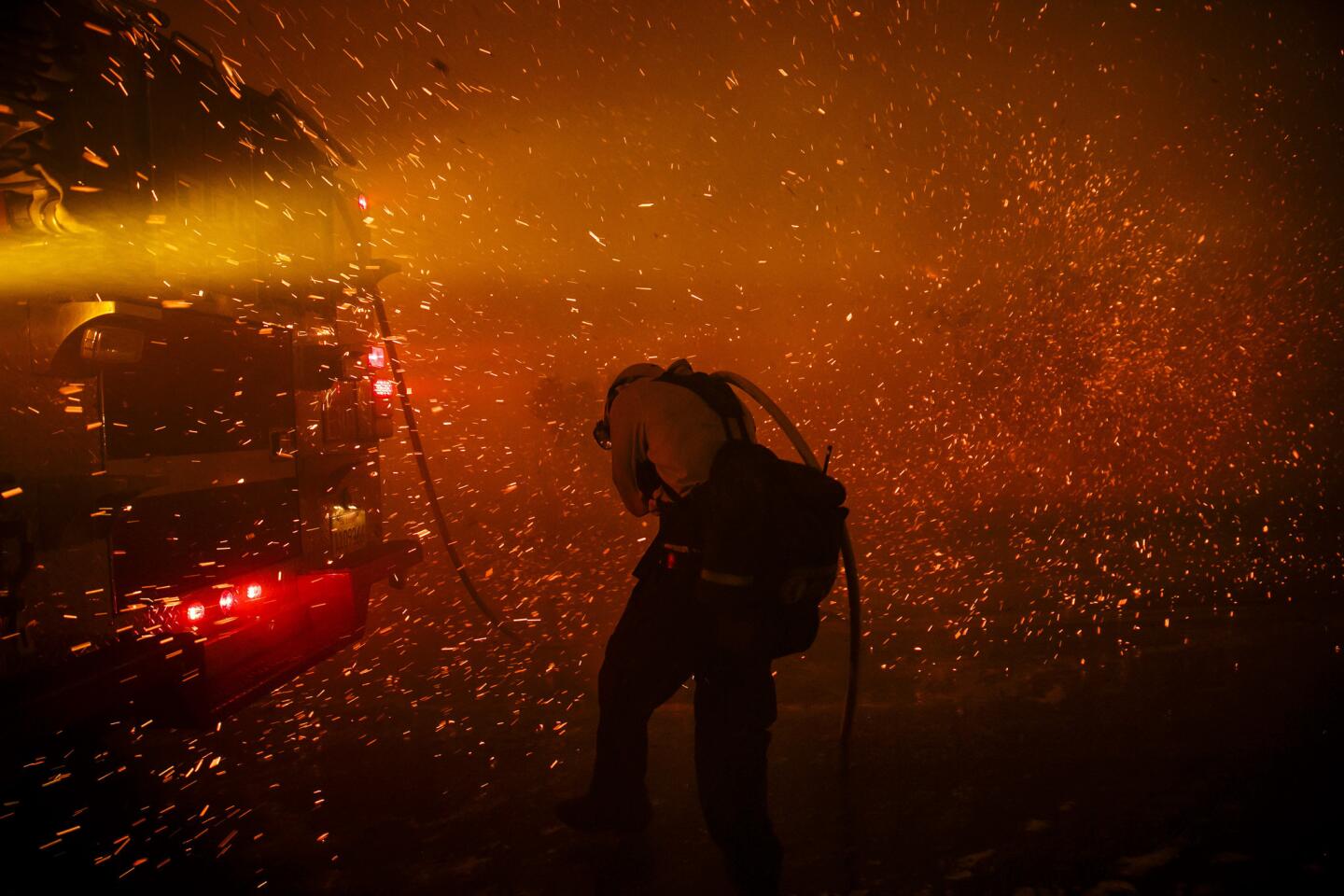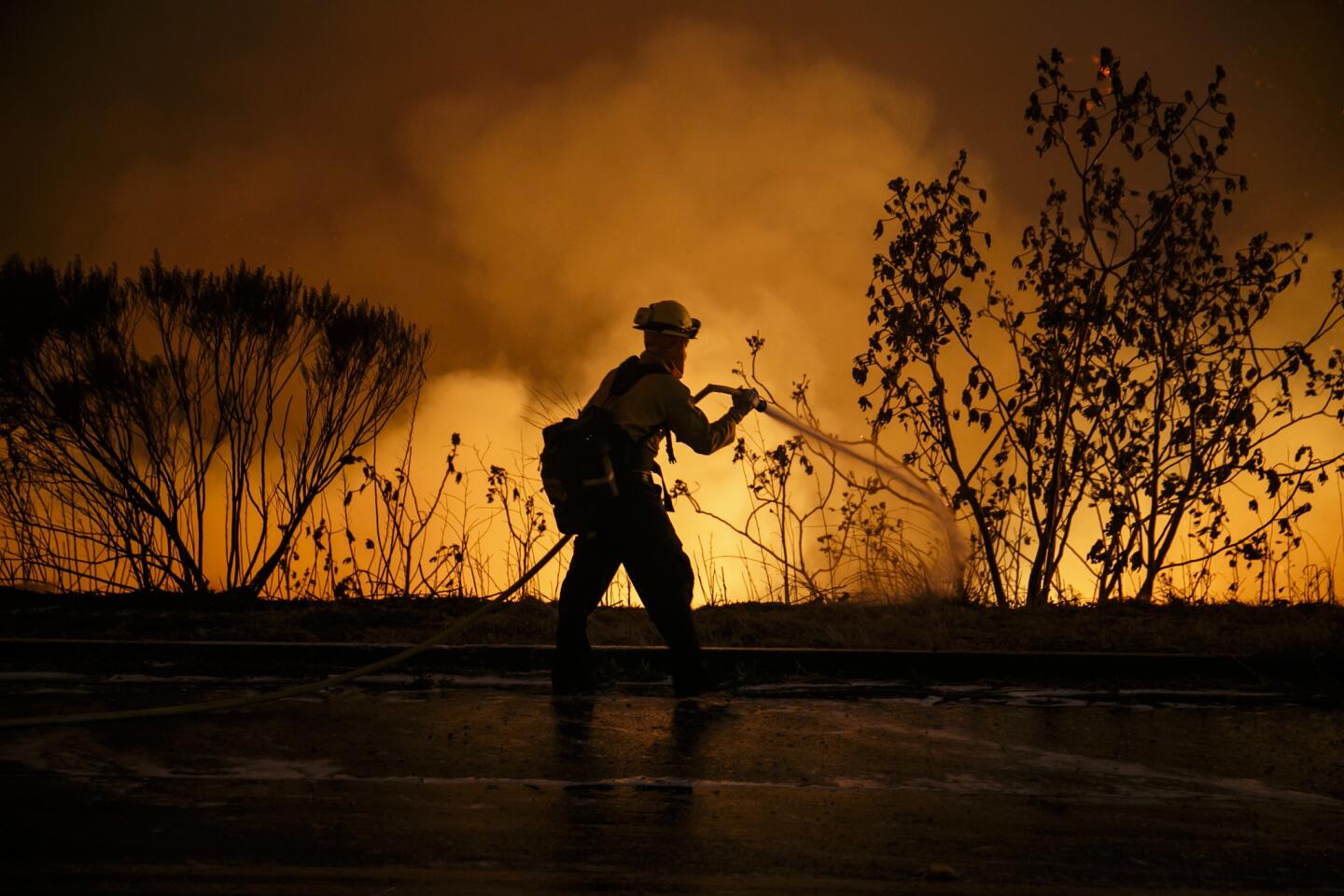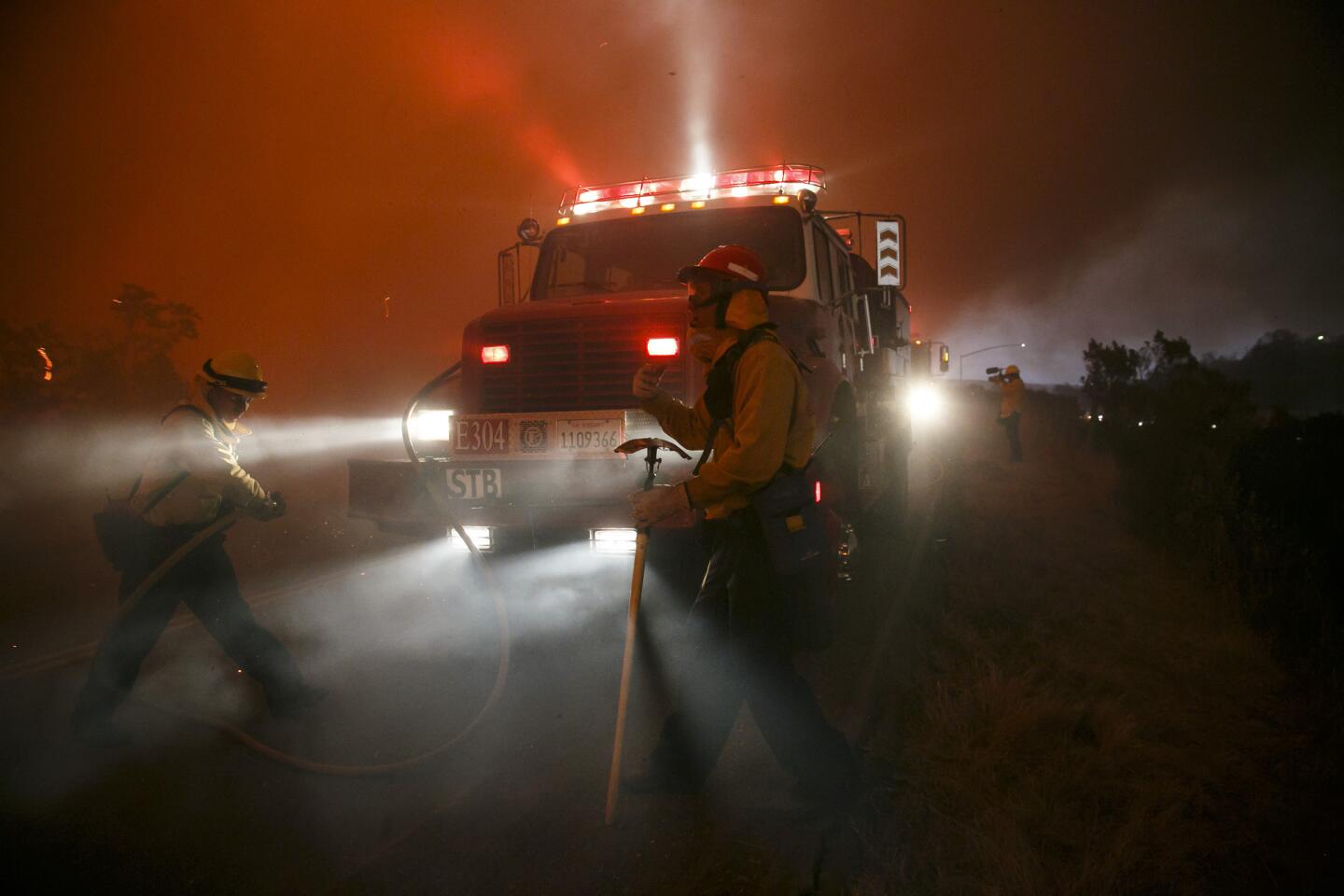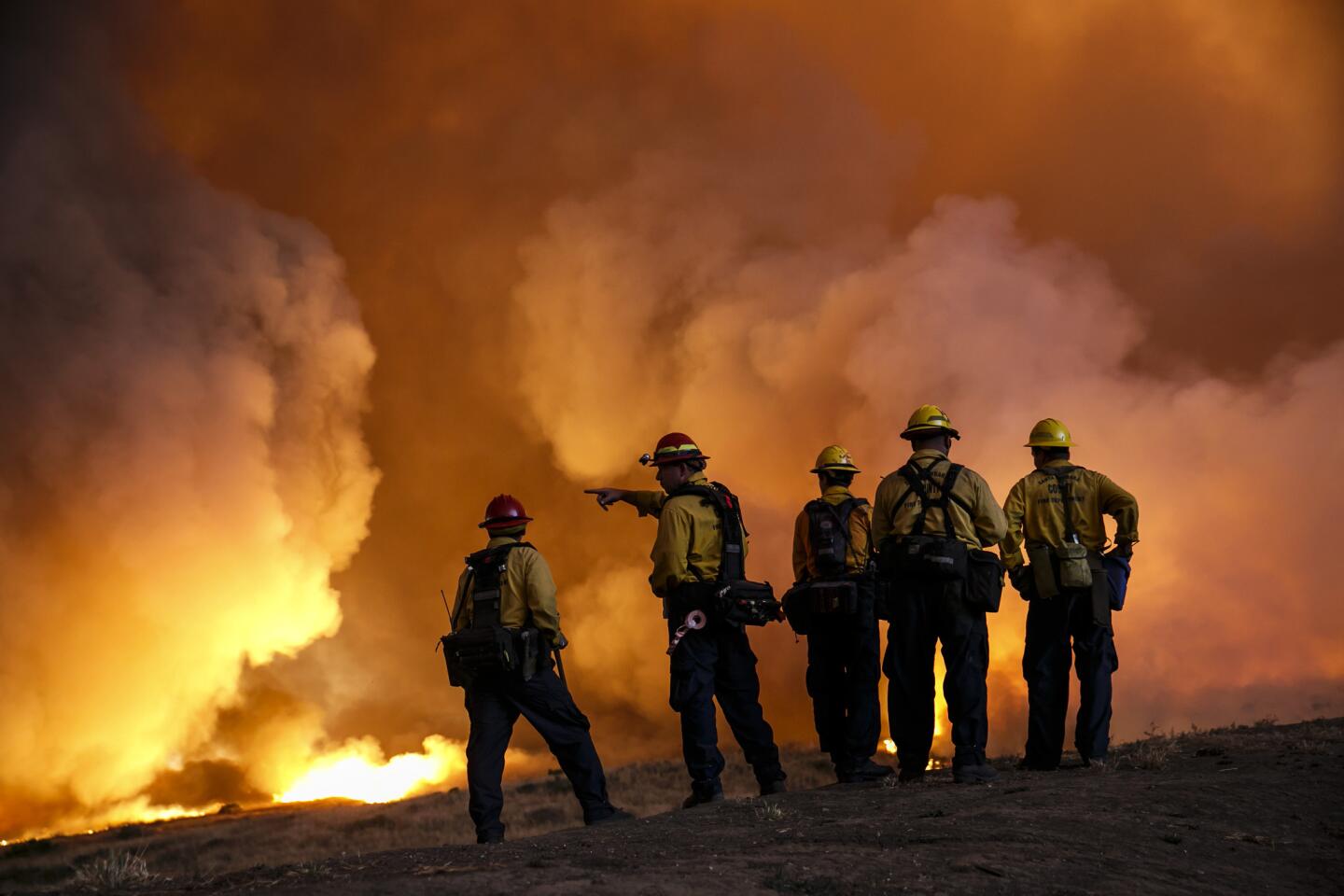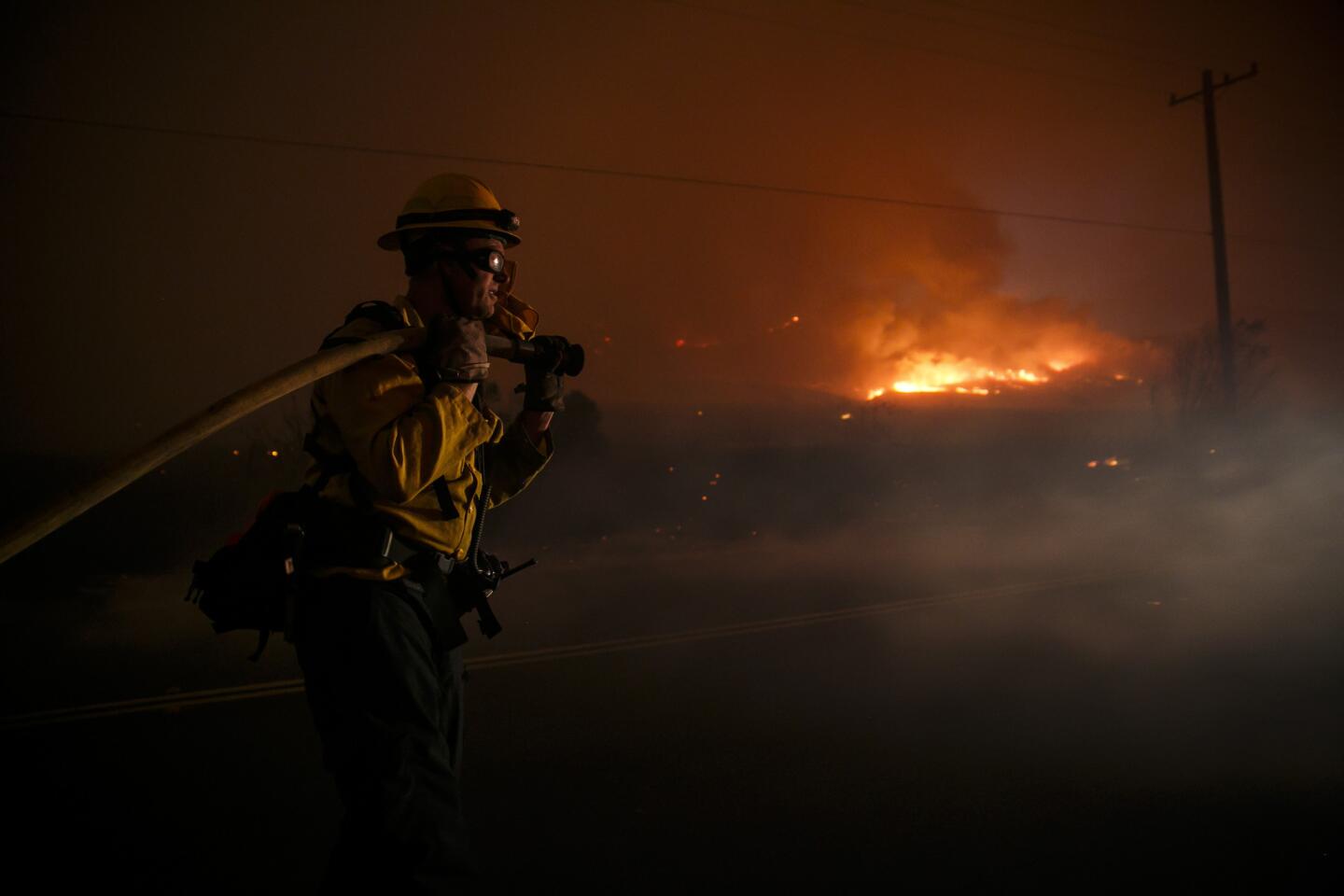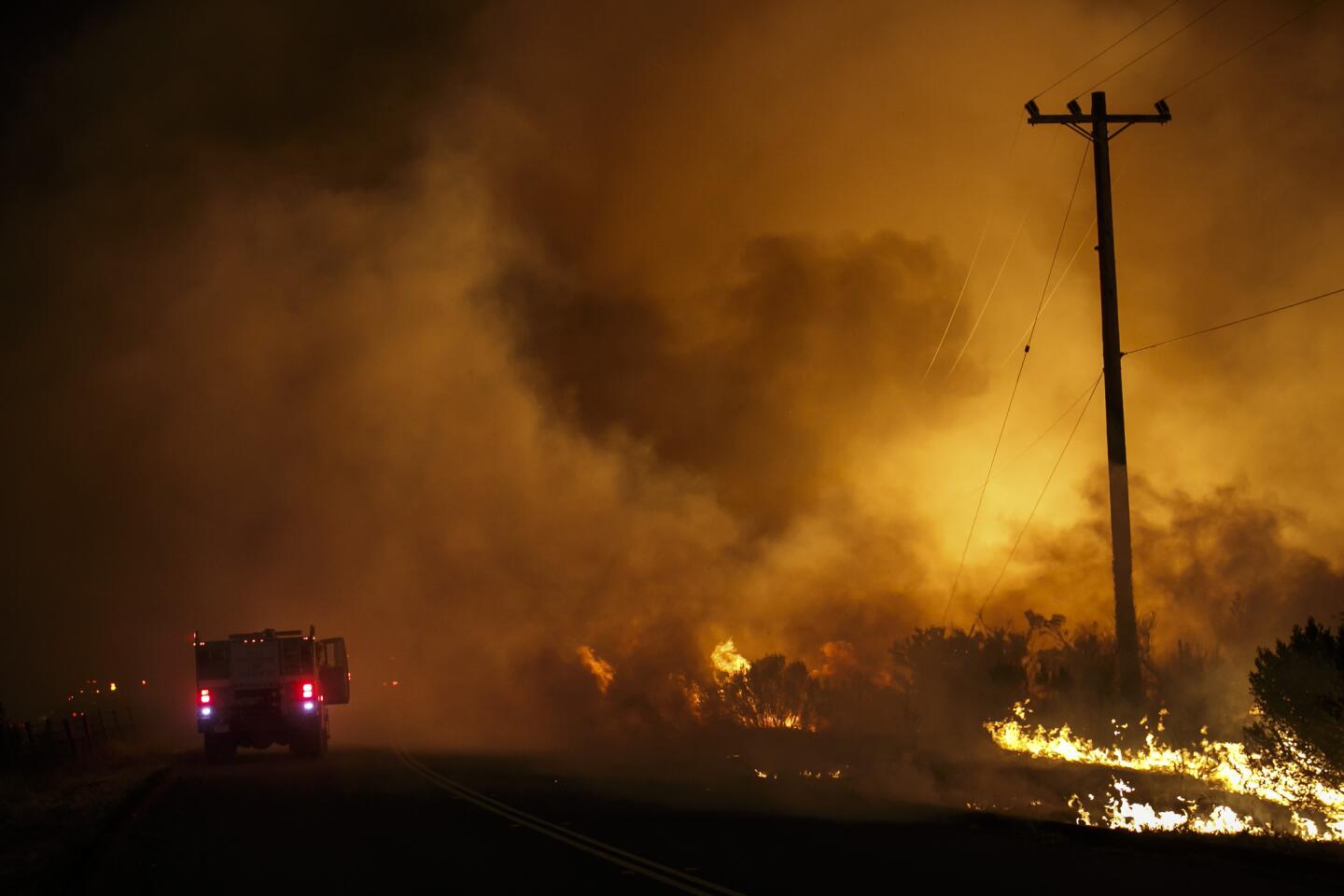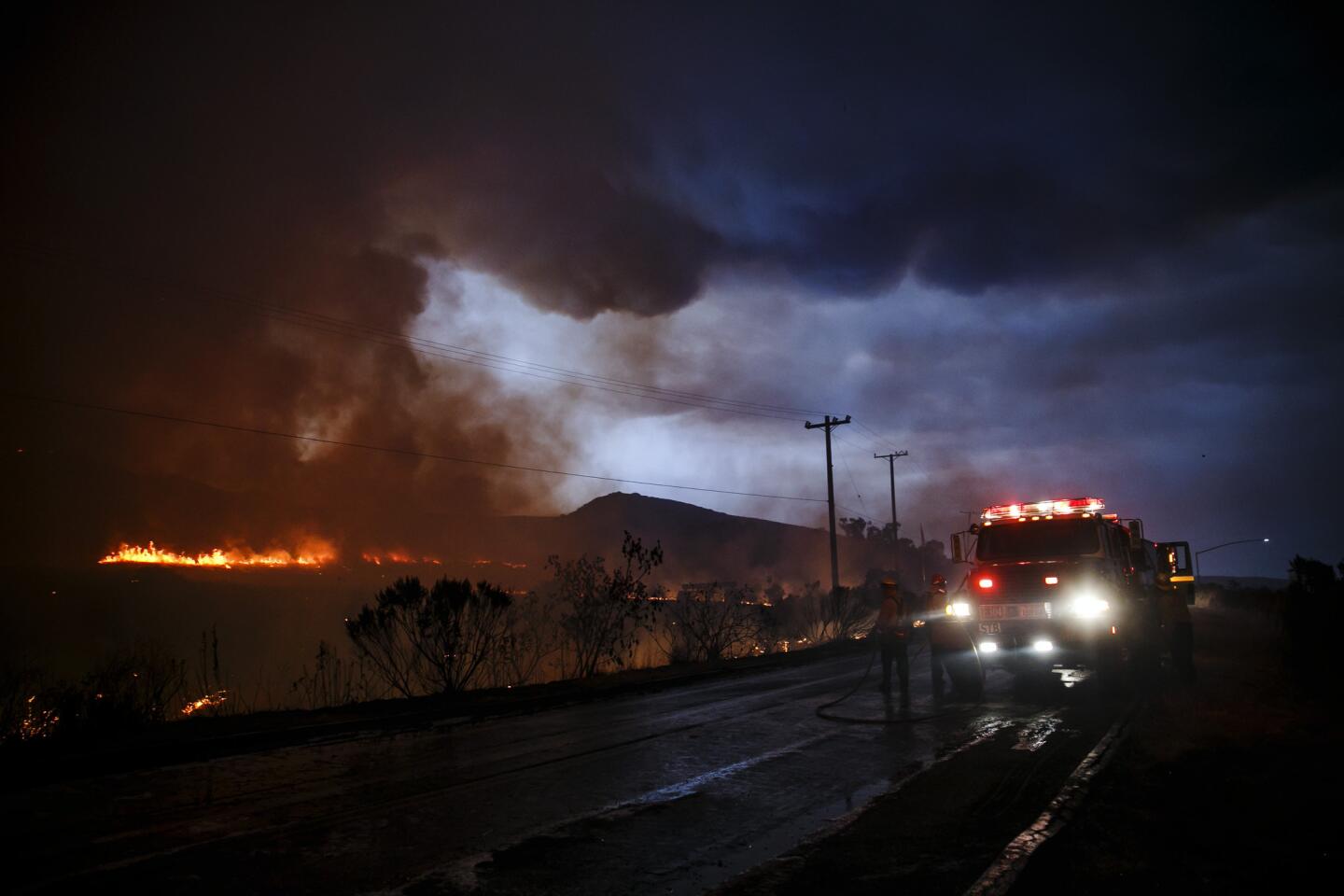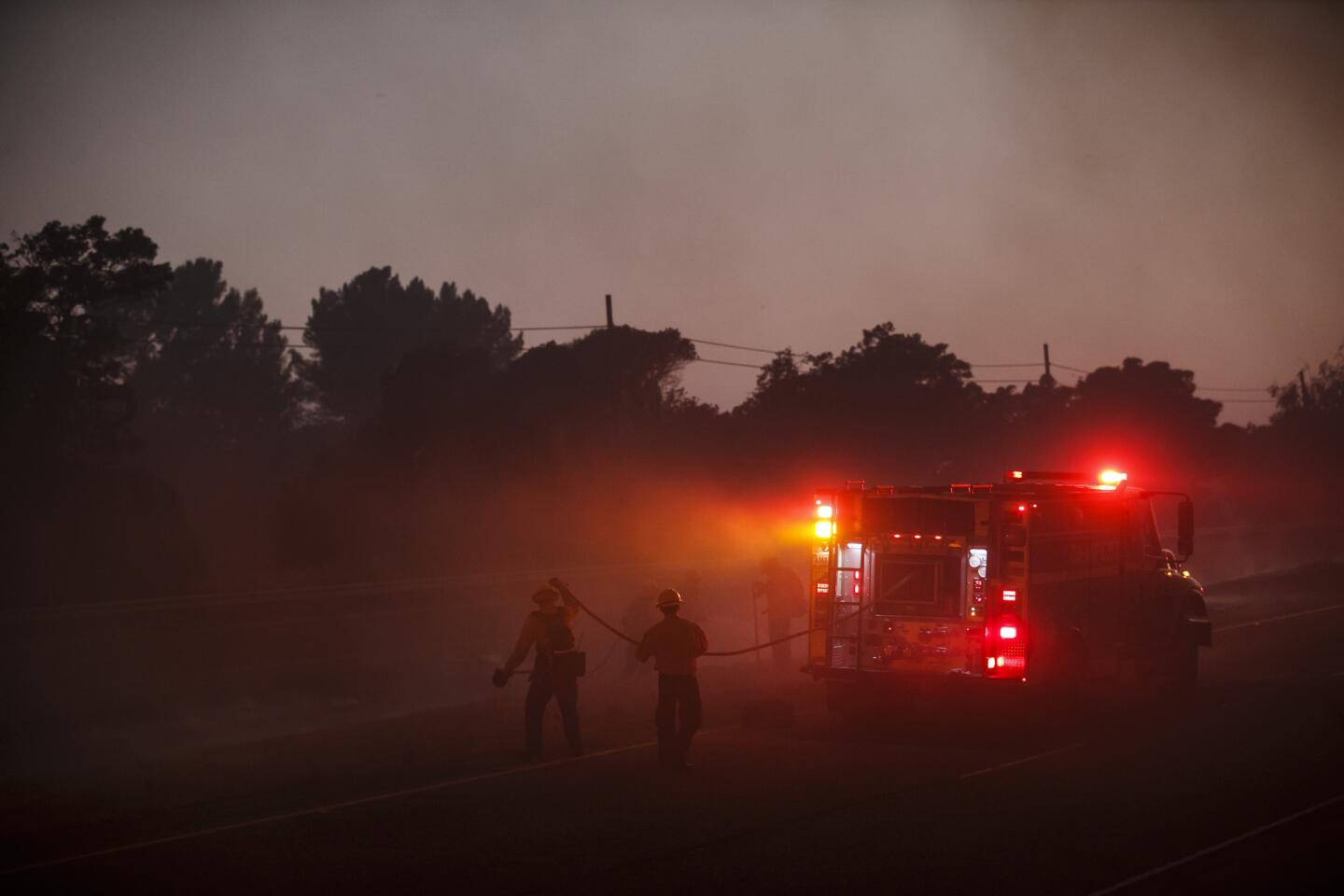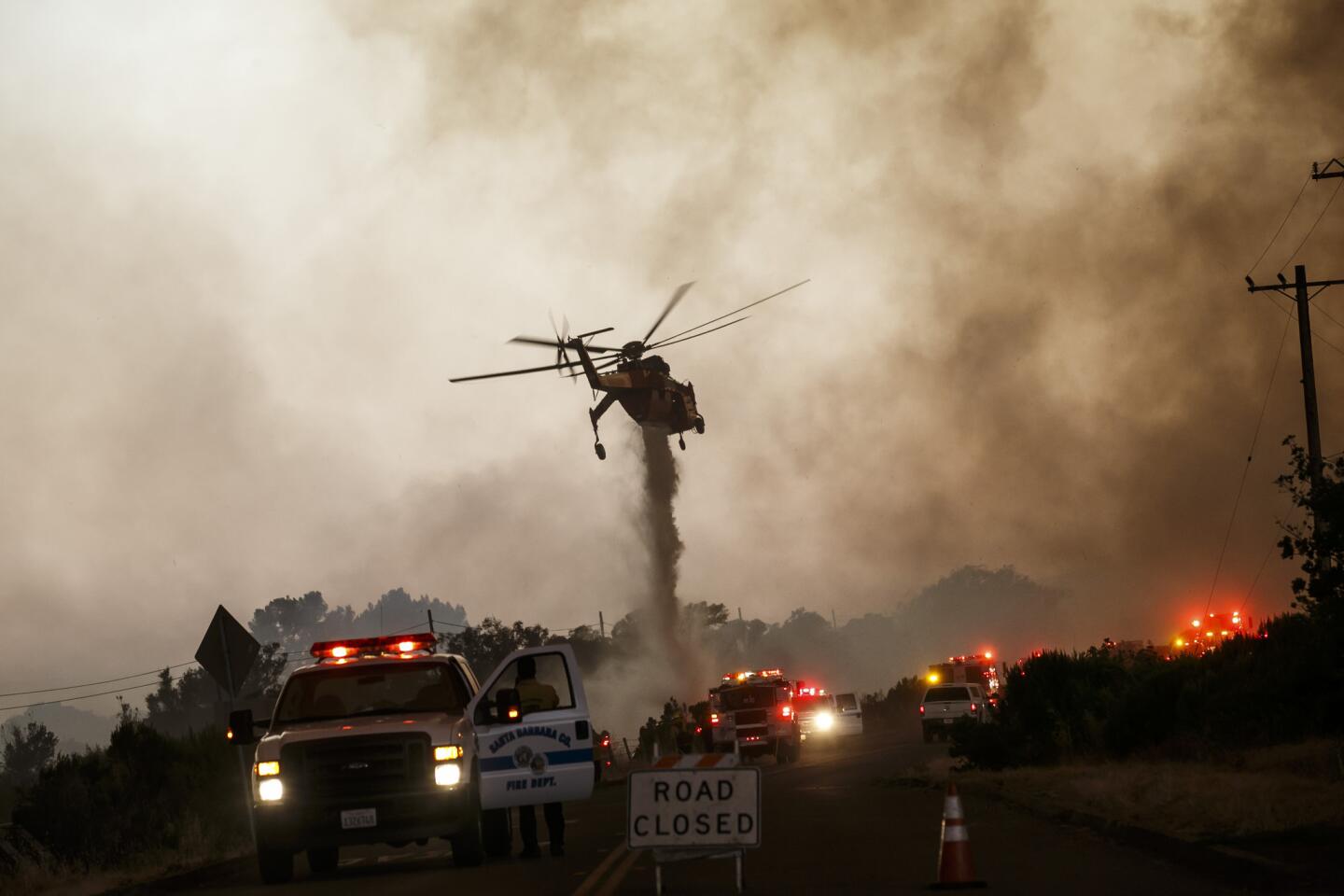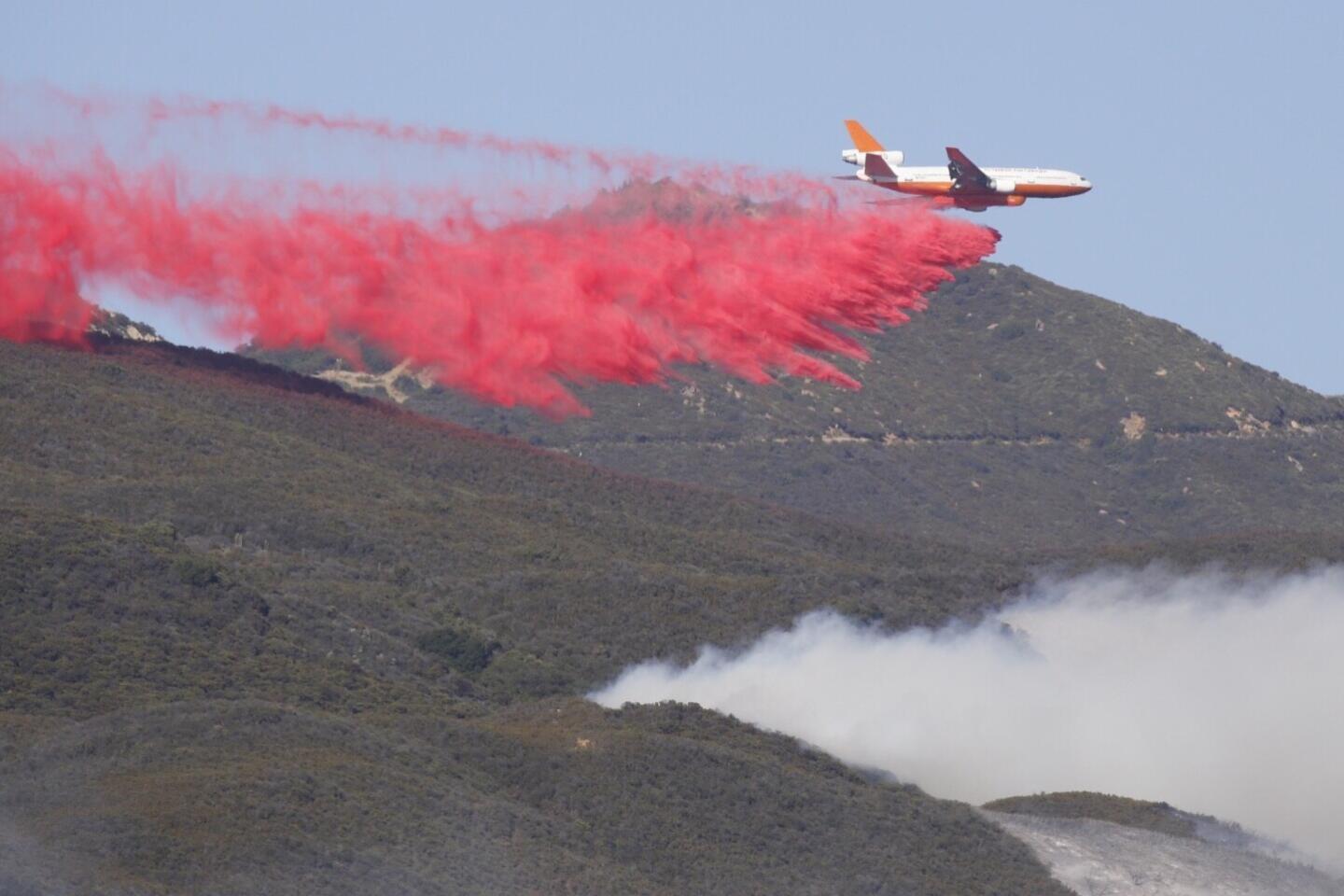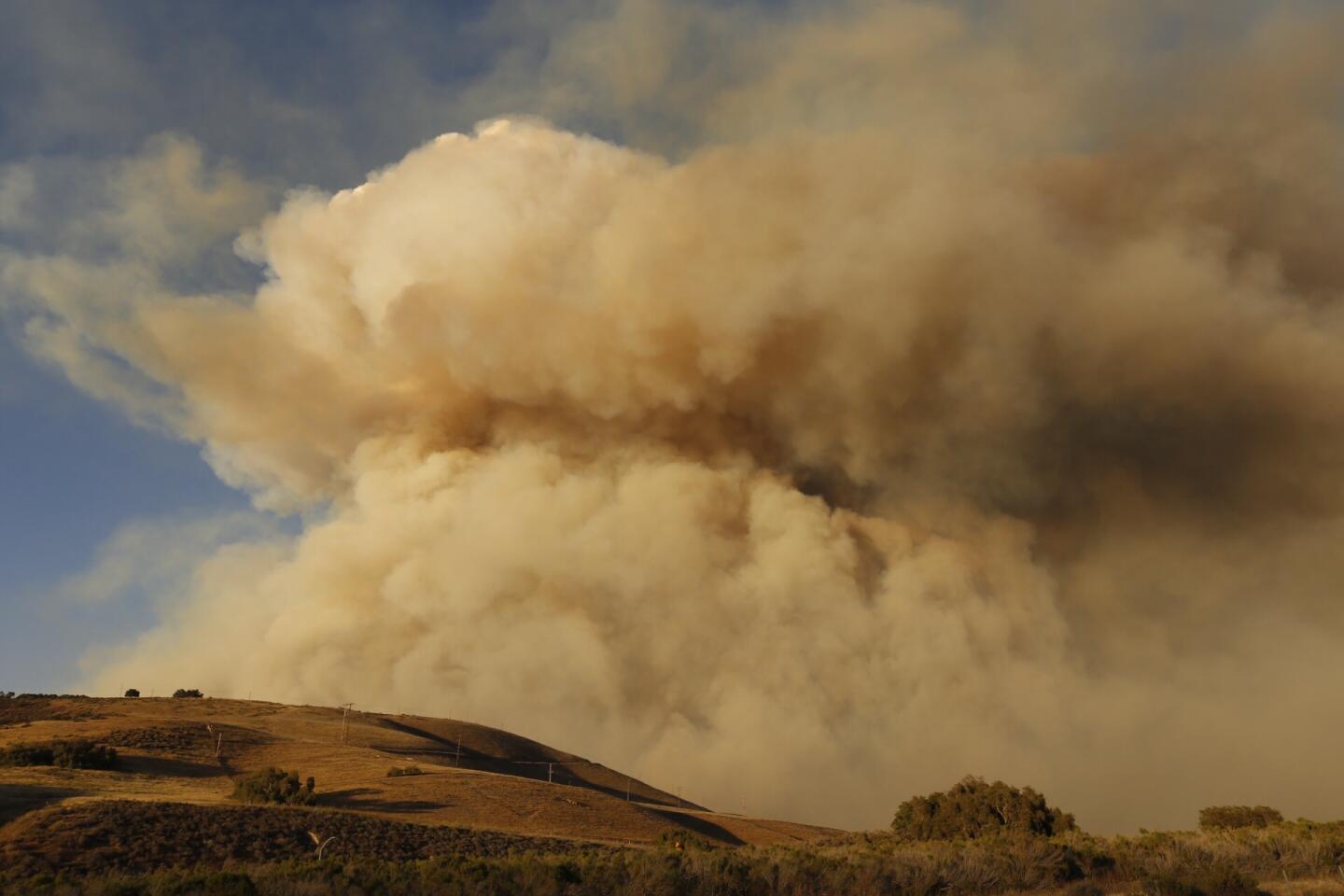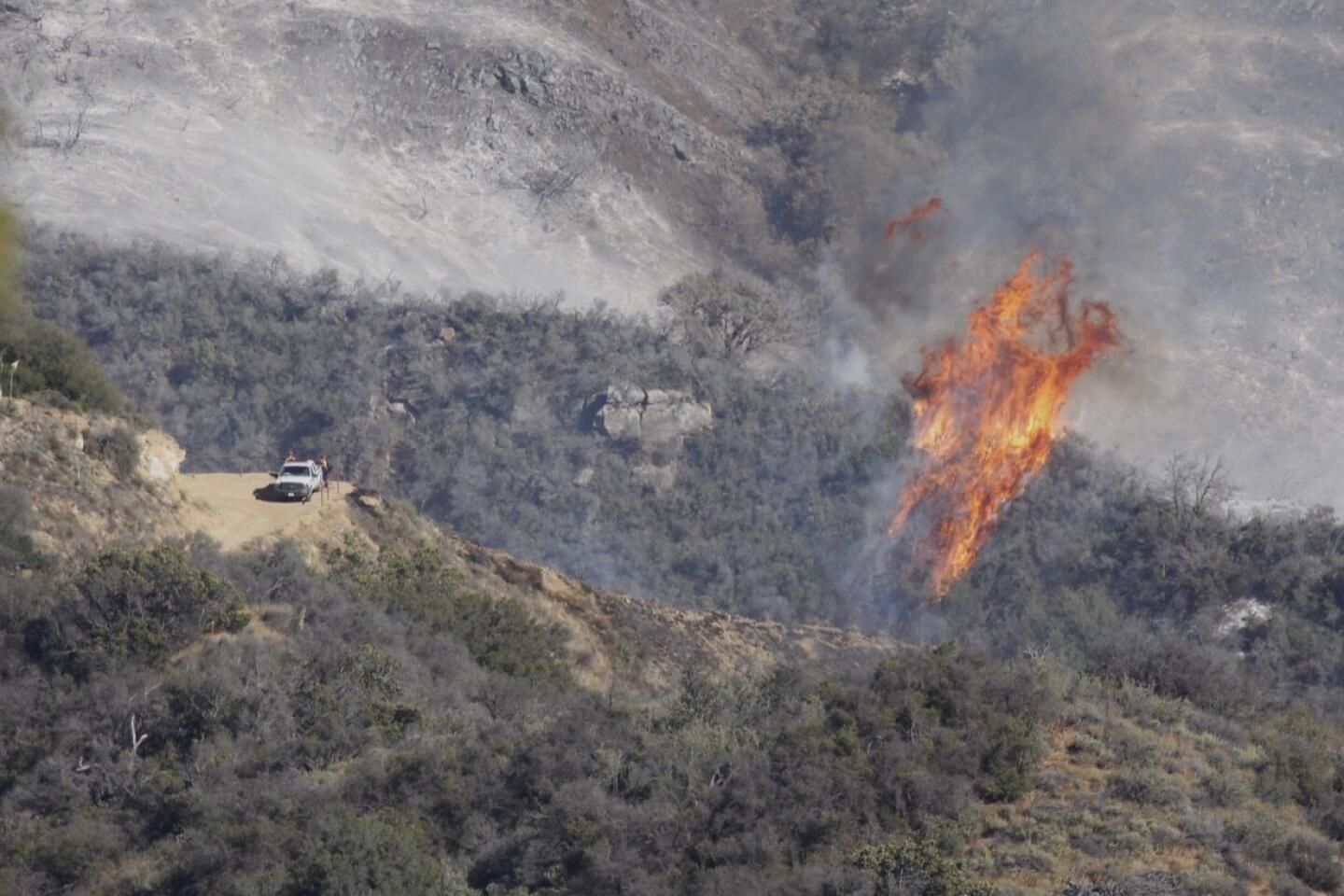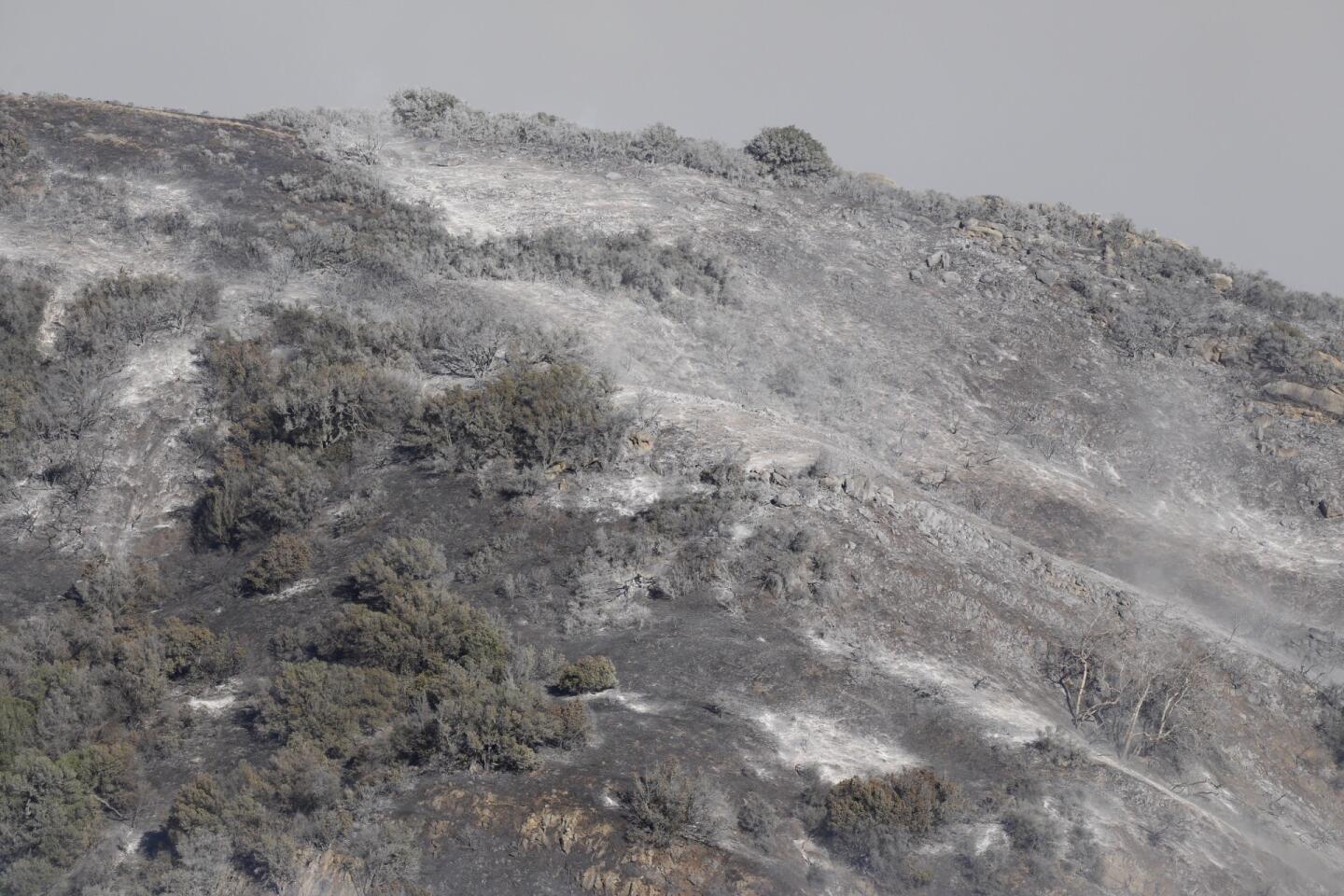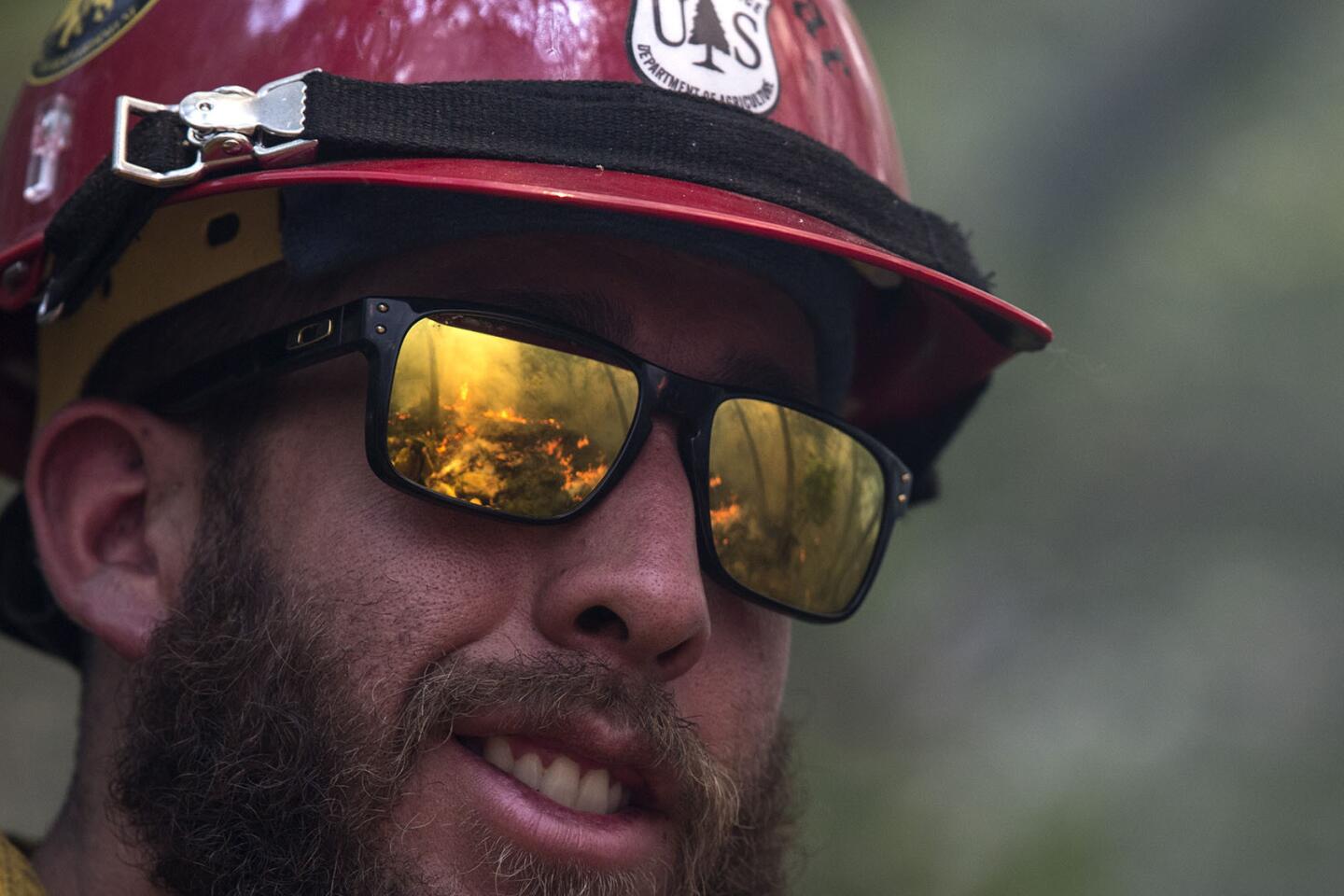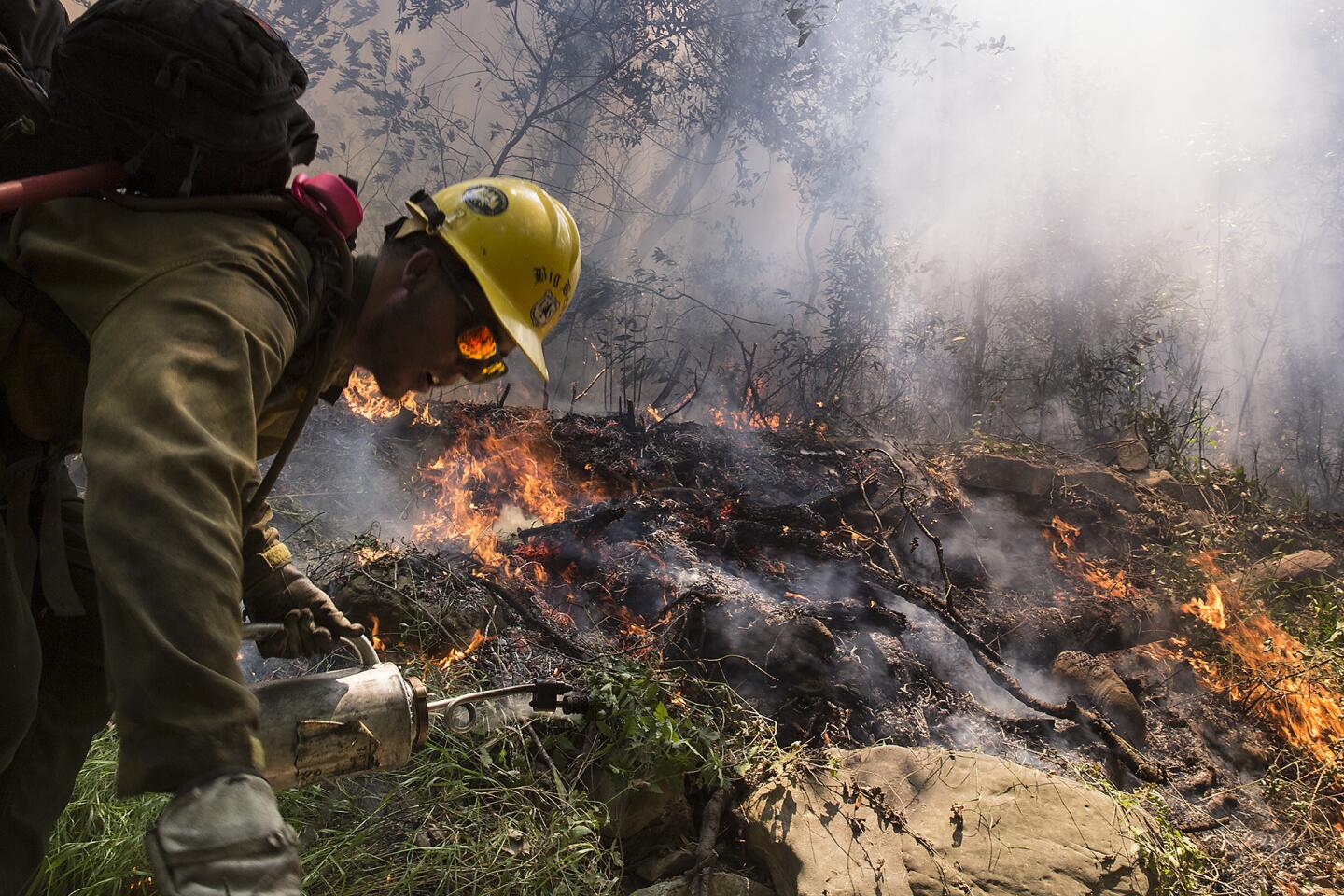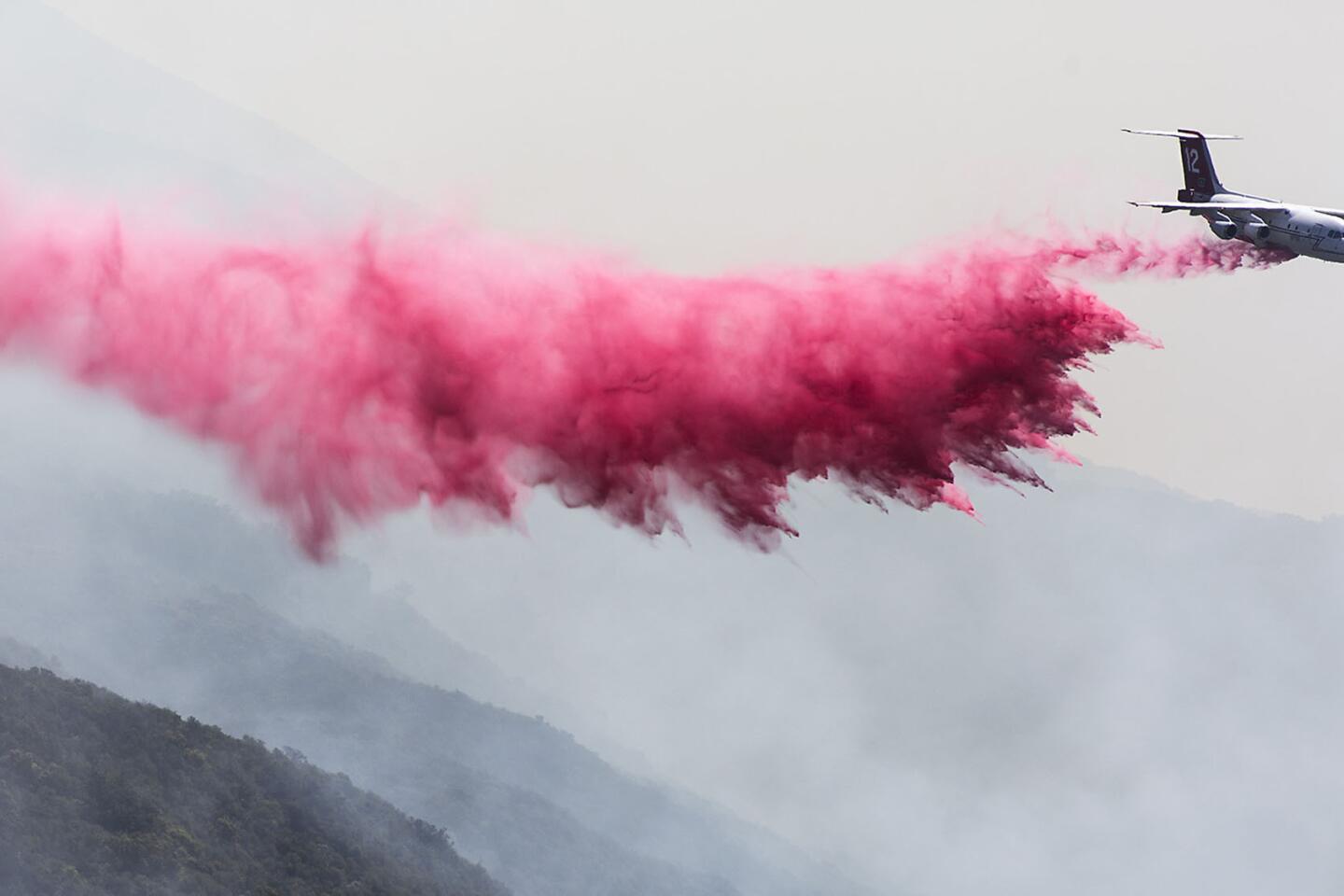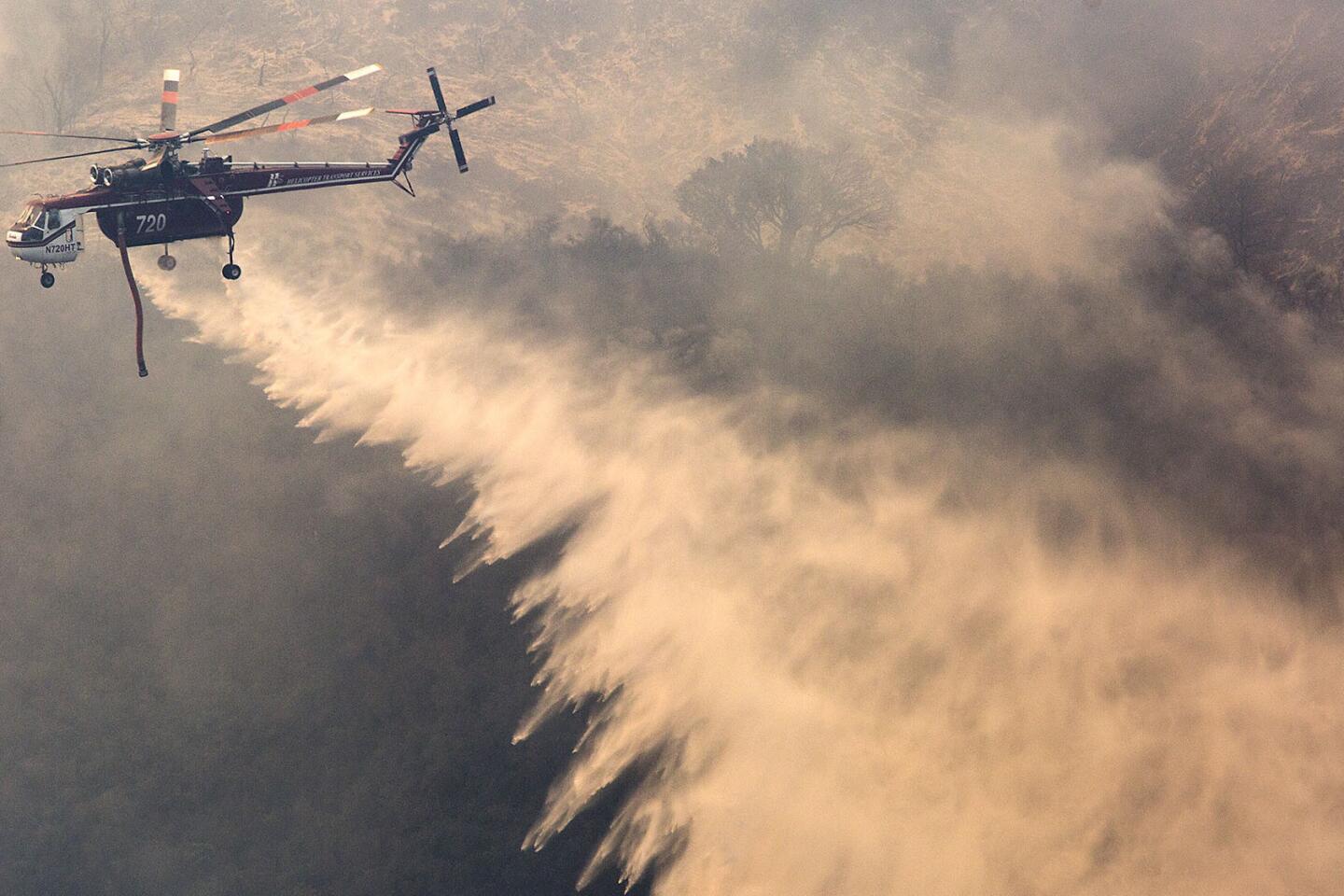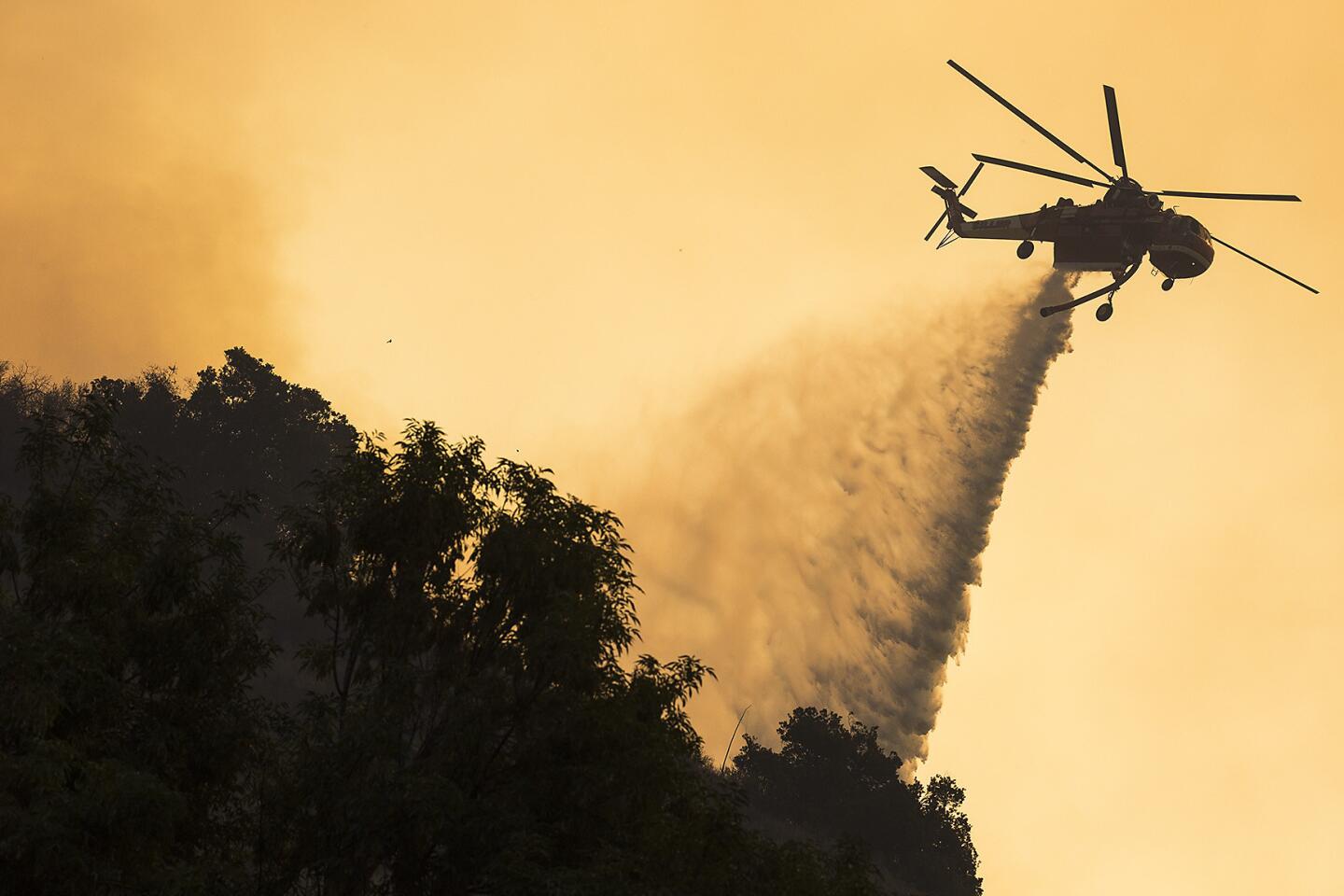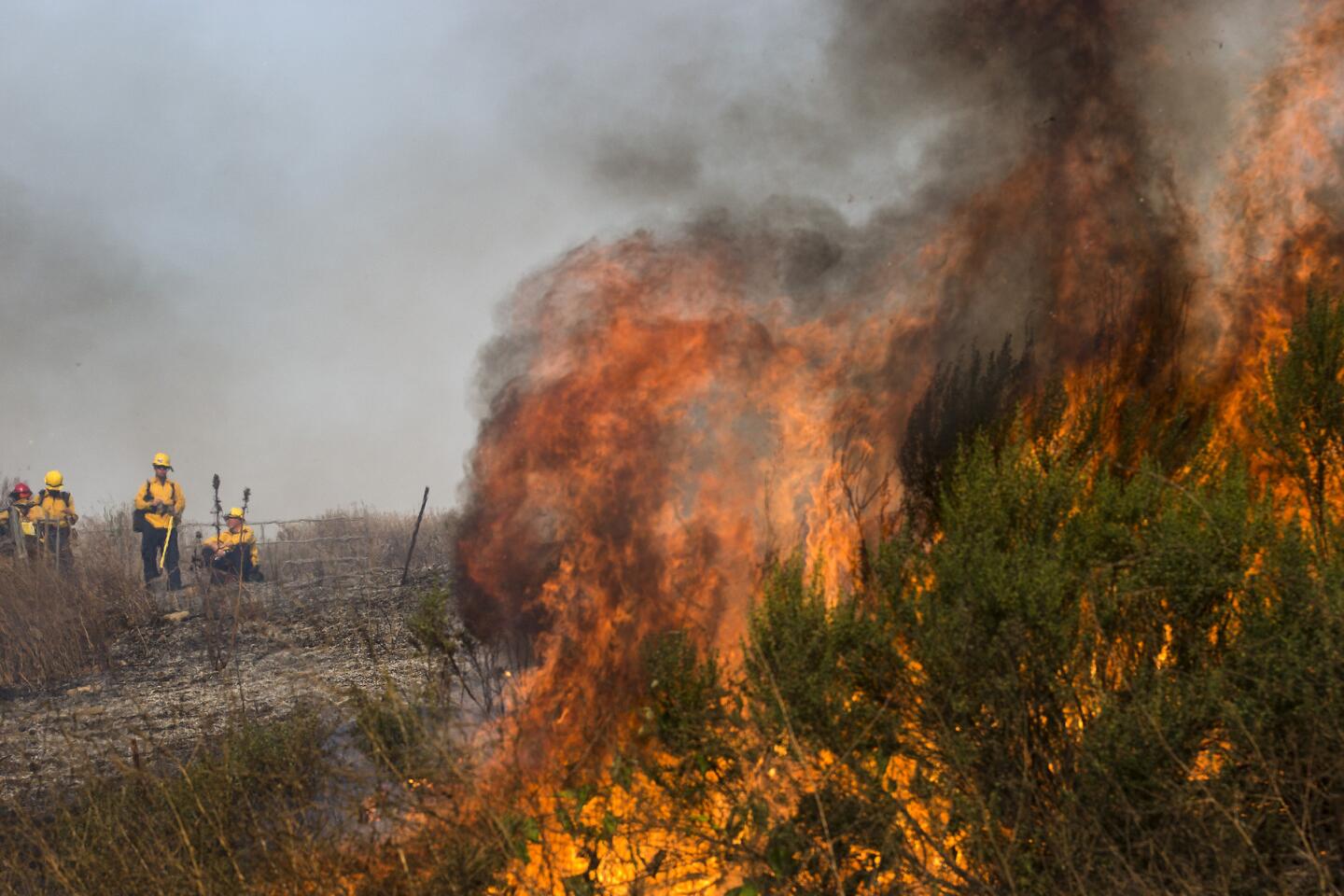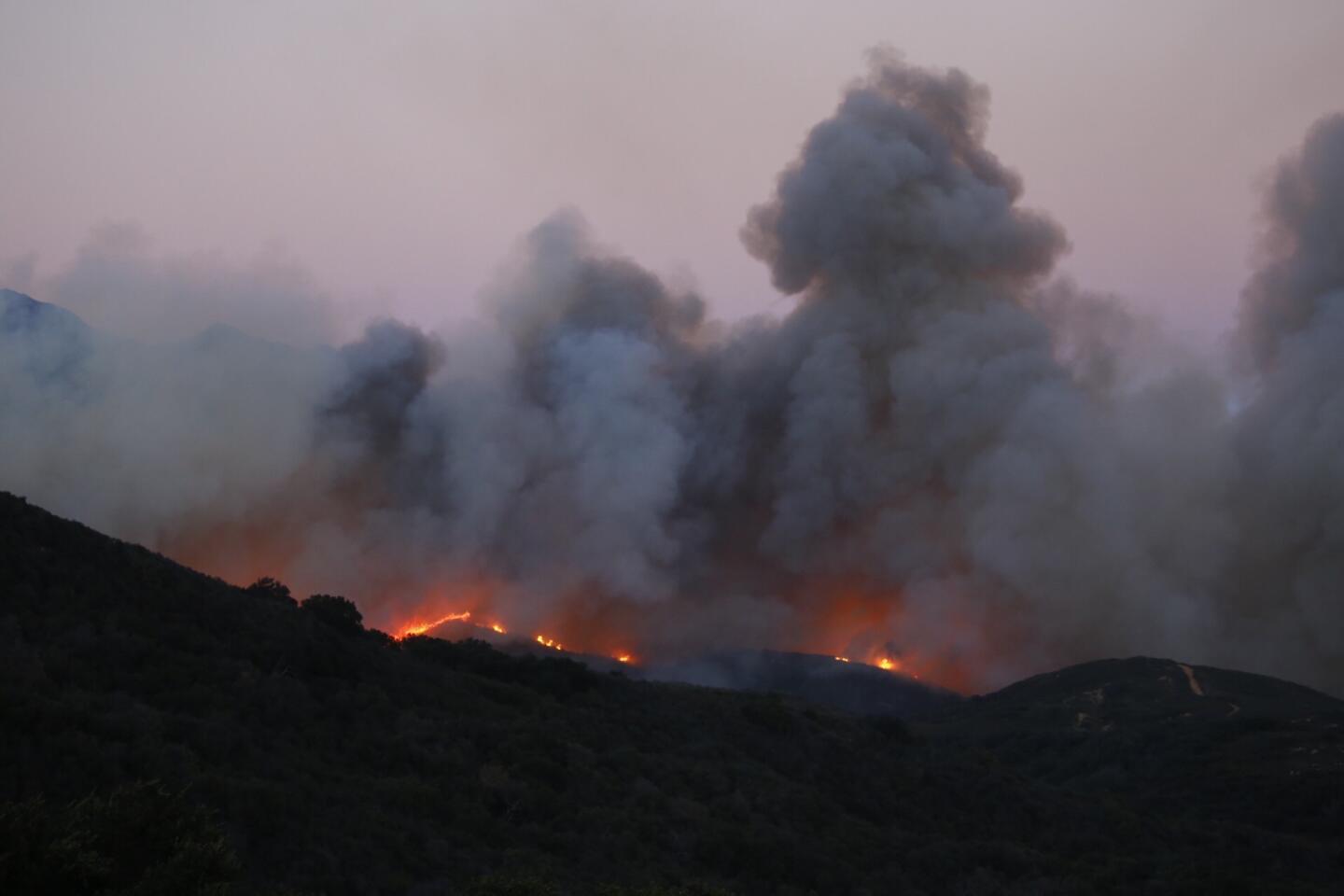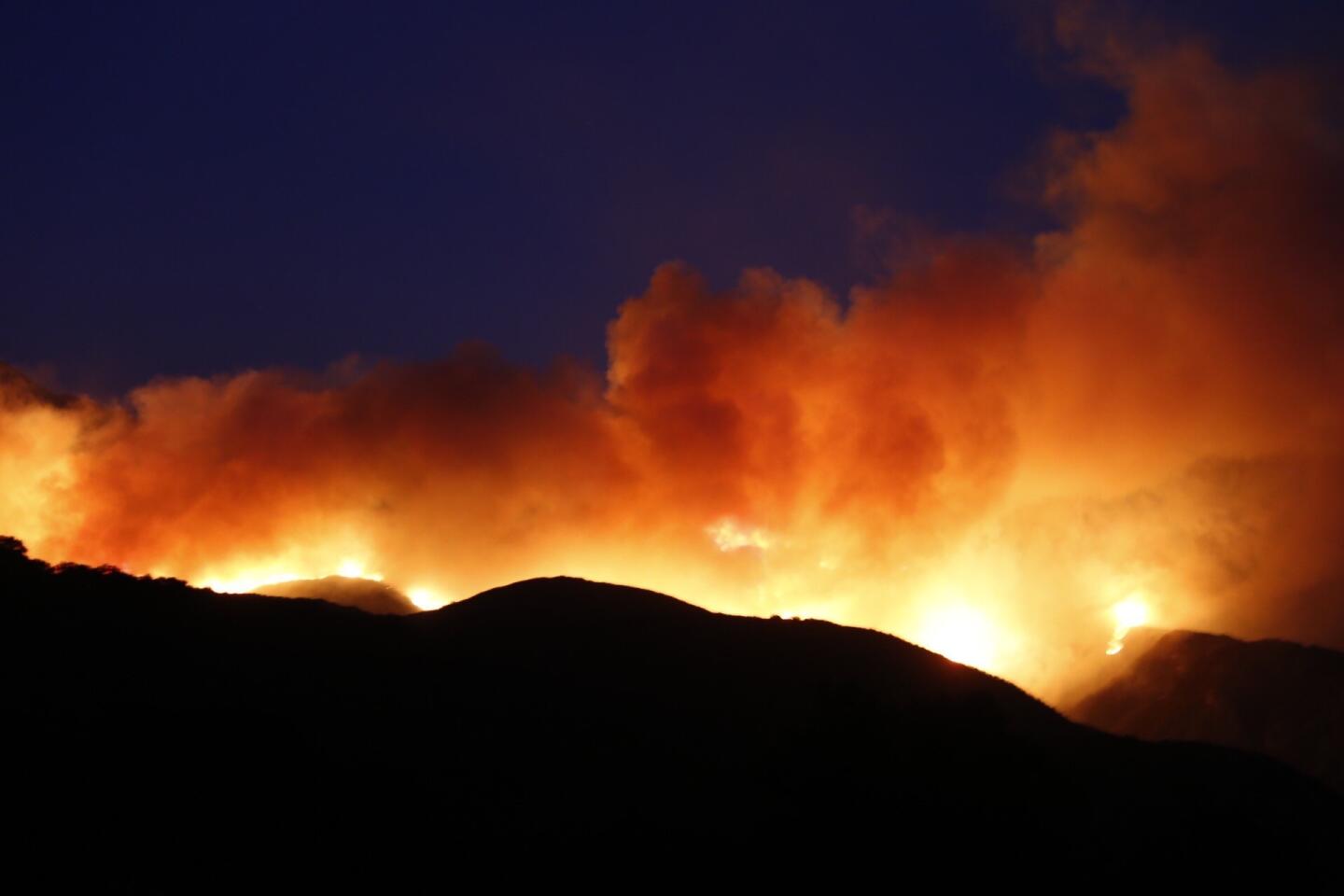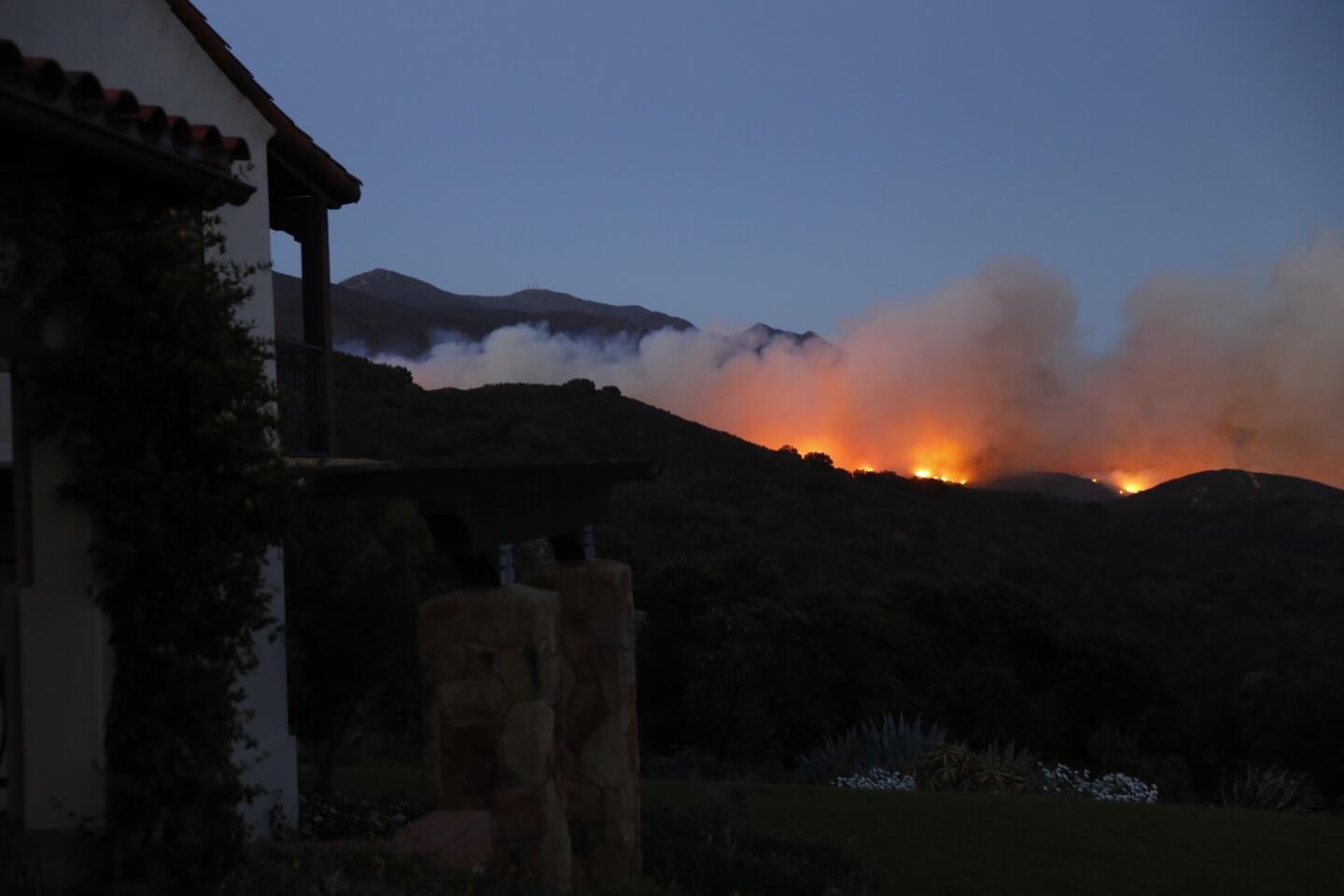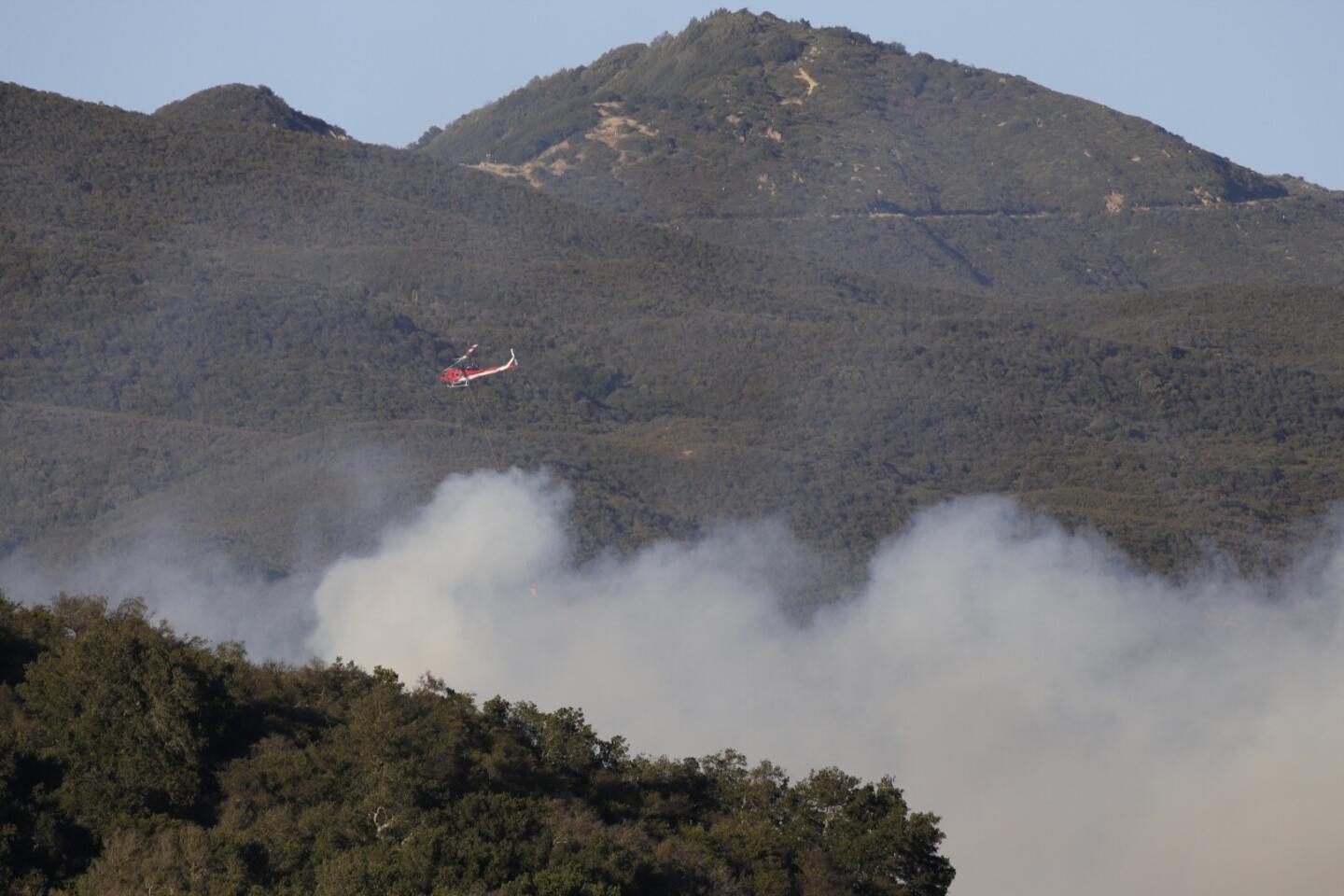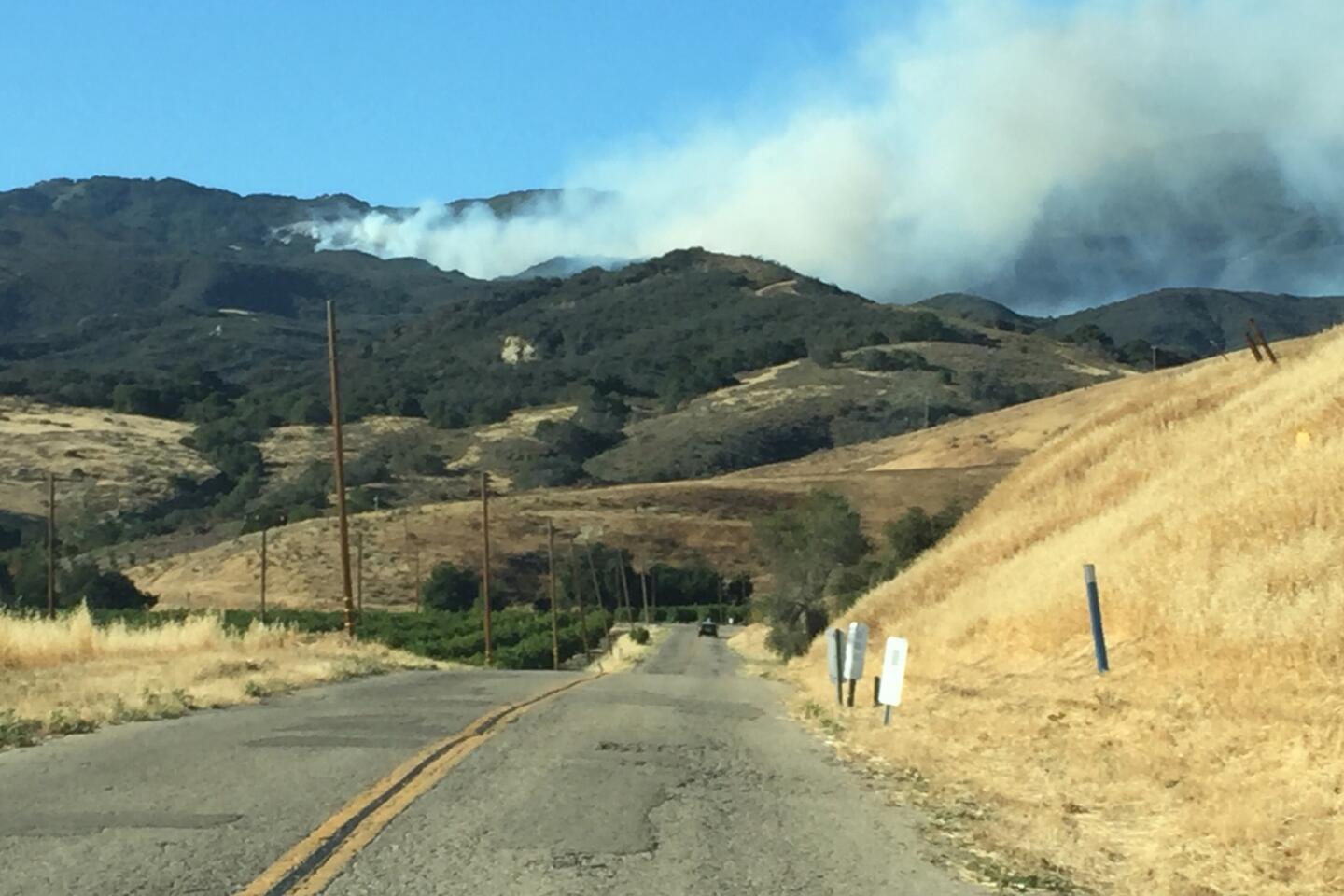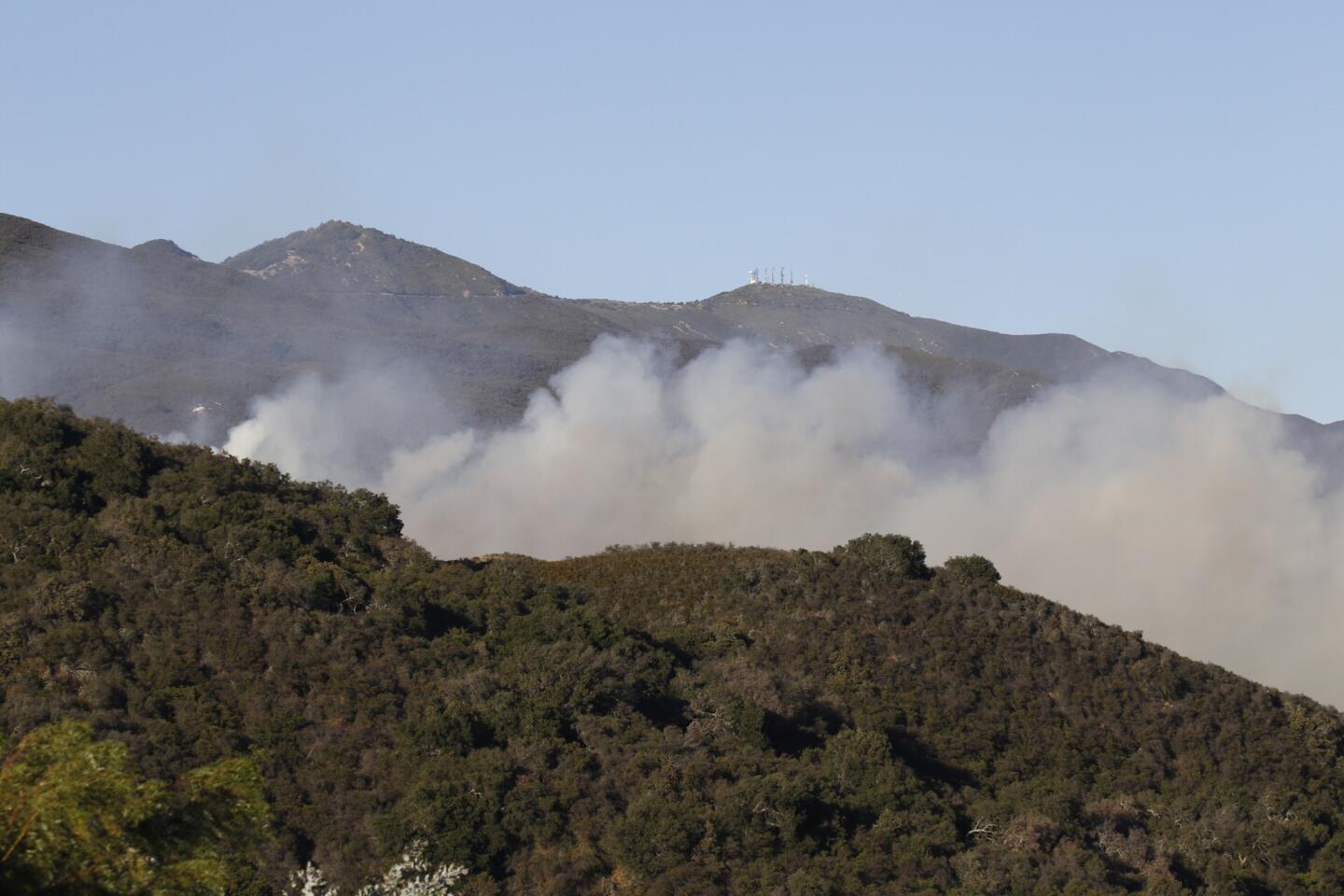Sherpa fire in Santa Barbara County grows to nearly 6,000 acres as a hot, windy weekend looms
A fast-moving brush fire in Santa Barbara County more than tripled in size Friday as strong overnight winds, rising temperatures and an extended drought plagued weary firefighters.
The Sherpa fire has grown to nearly 6,000 acres, and officials described the blaze as 20% contained. But even that progress was at risk late Friday from so-called sundowner winds expected to gain strength, as they had the previous two nights.
“Even though conditions appear to have become better in the day, the truth is things can and do change very rapidly in the evening,” said Santa Barbara County Sheriff Bill Brown.
Mandatory evacuation orders are in effect for El Capitan, Refugio, Venadito and Las Flores canyons north of Santa Barbara. Residents of neighboring communities, such as Las Llagas, Gato, Las Varas, Dos Pueblos and Eagle canyons received evacuation warnings.
UPDATE: Sherpa fire in Santa Barbara County grows>>
“We caution you again that not complying with a mandatory evacuation order is something that you do at your own peril,” Brown said.
Despite the fire’s rapid growth, firefighters managed to save a campground and keep flames away from other developed property. About 270 structures are under evacuation orders, but only one outbuilding had been lost.
Also lost was a water treatment plant in El Capitan Canyon. It provided water to El Capitan State Park for bathrooms, water fountains and other uses, according to officials.
Its loss could force public areas to remain closed even after the flames are subdued, officials said.
The flames are racing through a combustive mix of chaparral, tall grass and brush in a wilderness area that has not experienced a major fire since 1955.
The surreal scene included fire tornadoes with temperatures reaching 2,000 degrees Fahrenheit.
“We definitely expect the fire to grow” Friday night, said Michelle Carbonaro, a spokeswoman for a team of agencies combating the fire. “It’s pretty clear that every night the fire will continue to grow southeast.... It grows northeast by day, but the sundowners push it back down at night.”
And the weekend will usher in a new challenge: a heat wave that will bring temperatures reaching into the triple digits.
“As the temperatures get hotter this weekend and the winds get stronger, as the sundowners come in to take effect, it will continue to push that hot gas faster downhill,” Carbonaro said. “When the wind comes down like that, it makes the fields and fuels more ready to burn.”
One firefighter suffered a minor injury from a chainsaw, but a greater concern Friday evening was the discovery of strep throat among a few of the firefighters. That problem appeared to be contained, even as the official evening bulletin cataloged the ongoing fire risk.
“There is continued threat to structures, agricultural crops, state parks, and critical infrastructure including: communication sites [and] power lines. And Highway 101 remains a concern.”
Santa Barbara fire bad omen for dangerous California fire season »
As the fire raged out of control Thursday night, the 101, a major north-south artery, closed to traffic as tendrils of flame burned on both sides of the roadway. Motorists trapped en route took pictures of a helicopter dropping flame retardant in the fast lane.
The highway reopened at 4 a.m. Friday, but officials said gusty, evening downslope winds would probably prompt them to close the highway again.
The sundowner winds are the result of hot air from the Santa Ynez Mountains clashing with cool air off the Pacific Ocean.
“What we need is a break from the wind,” said David Zaniboni, public information officer for the Santa Barbara County Fire Department.

Los Padres National Forest fire (Dillon Deaton / Los Angeles Times)
Many locals evacuated because of the poor air quality — they were tired of breathing in thick smoke and ash, which created a misty plume clearly visible from satellite photos taken far above the planet’s surface.
Riley Keith, a 65-year-old retiree, saw smoke blanket the sky over El Capitan Ranch and knew it was time to go.
Keith, his wife, Yvonne, his mother, Betty Bosworth, and their dog and bird have been living out of their car since the fire started Wednesday.
They were living at his sister’s ranch in El Capitan when mandatory evacuation orders arrived Wednesday night.
His sister stayed behind, while he and his family slept in an Albertsons parking lot. The family since has moved to a shelter in Goleta, while Keith’s sister continued her vigil in defense of her property.
“She’s tough as nails,” he said. “But you have to be when you’re running a ranch. My wife and I just couldn’t stand the smoke.”
Keith, a Santa Barbara native, has grown accustomed to wildfires, but not necessarily of this scope.
“It hasn’t burned in so long. I guess it needed to happen,” he said. “But who needs a disaster?”
Although the threat to residents has been limited so far, the county’s $1.48-billion agriculture industry may not be so fortunate.
Avocado, citrus and olives groves already have been scorched, but it’s too early to determine the extent of the damage, county officials said.
Santa Barbara County on Friday declared a state of emergency, which will qualify the region for increased aid.
ALSO
Woman carries toddler into burning SUV, both are killed
Forecast for Southern California: Hot this weekend, even hotter Monday
California National Guard searches for couple and dog who went missing during 3-day hike
UPDATES:
9:02 p.m.: This article has been updated throughout with additional details.
3:09 p.m.: This article was updated with data about the county’s agriculture industry.
12:04 p.m.: This article was updated with weather forecasts and reactions from county officials.
9:29 a.m.: This article was updated with reactions from residents.
7:06 a.m.: This article was updated with information about the size of the fire increasing.
This article was originally published at 5:25 a.m.
More to Read
Sign up for Essential California
The most important California stories and recommendations in your inbox every morning.
You may occasionally receive promotional content from the Los Angeles Times.
